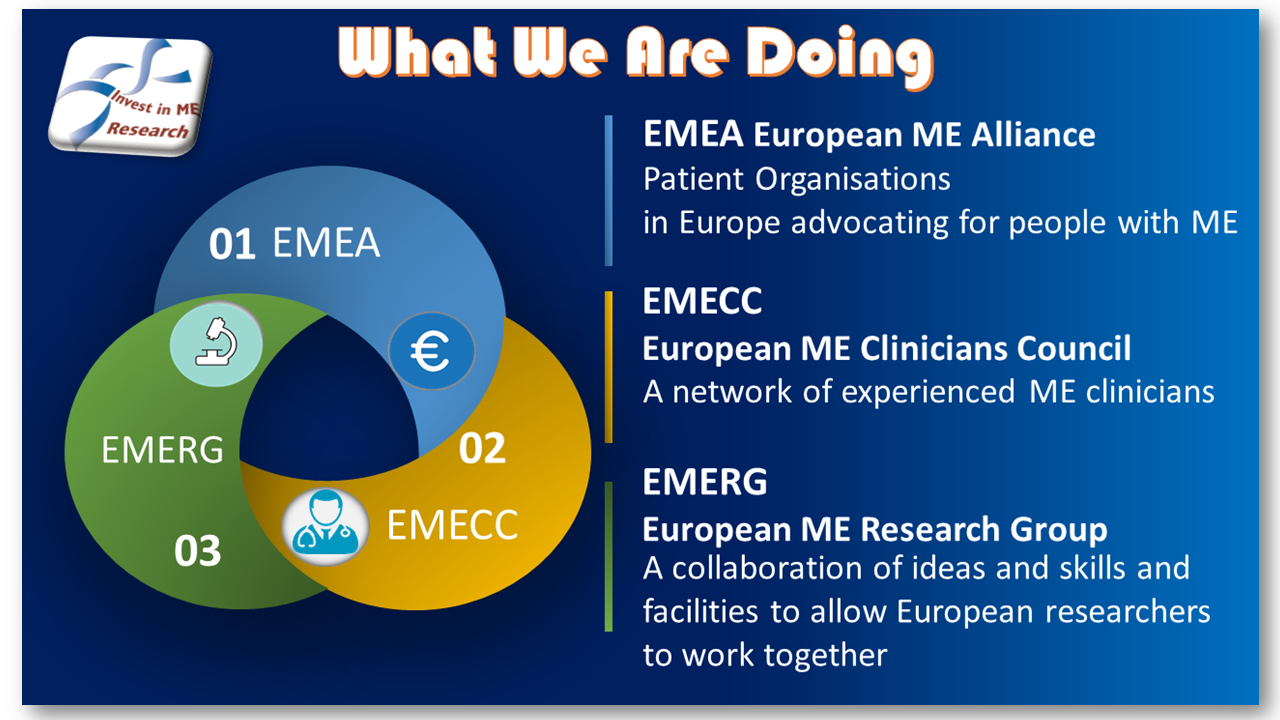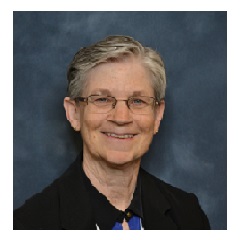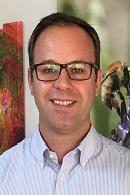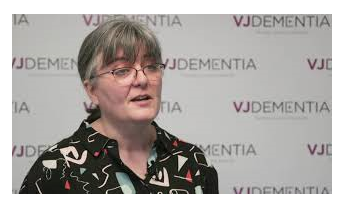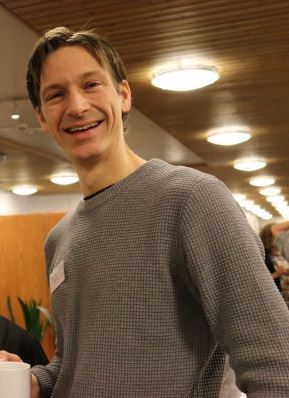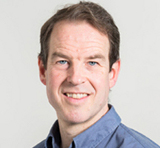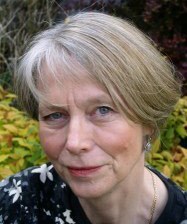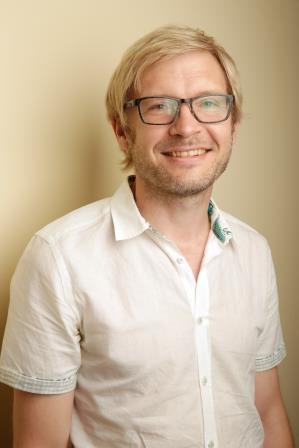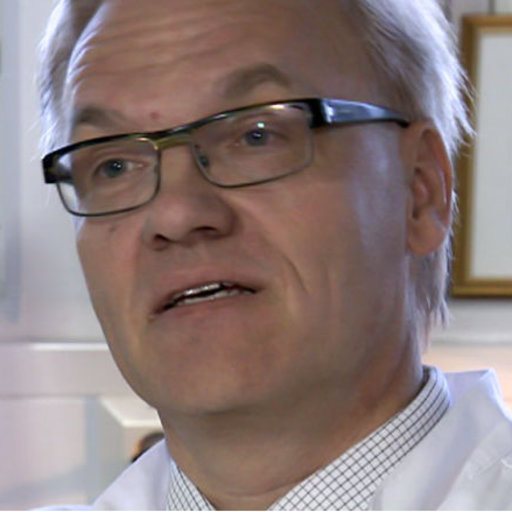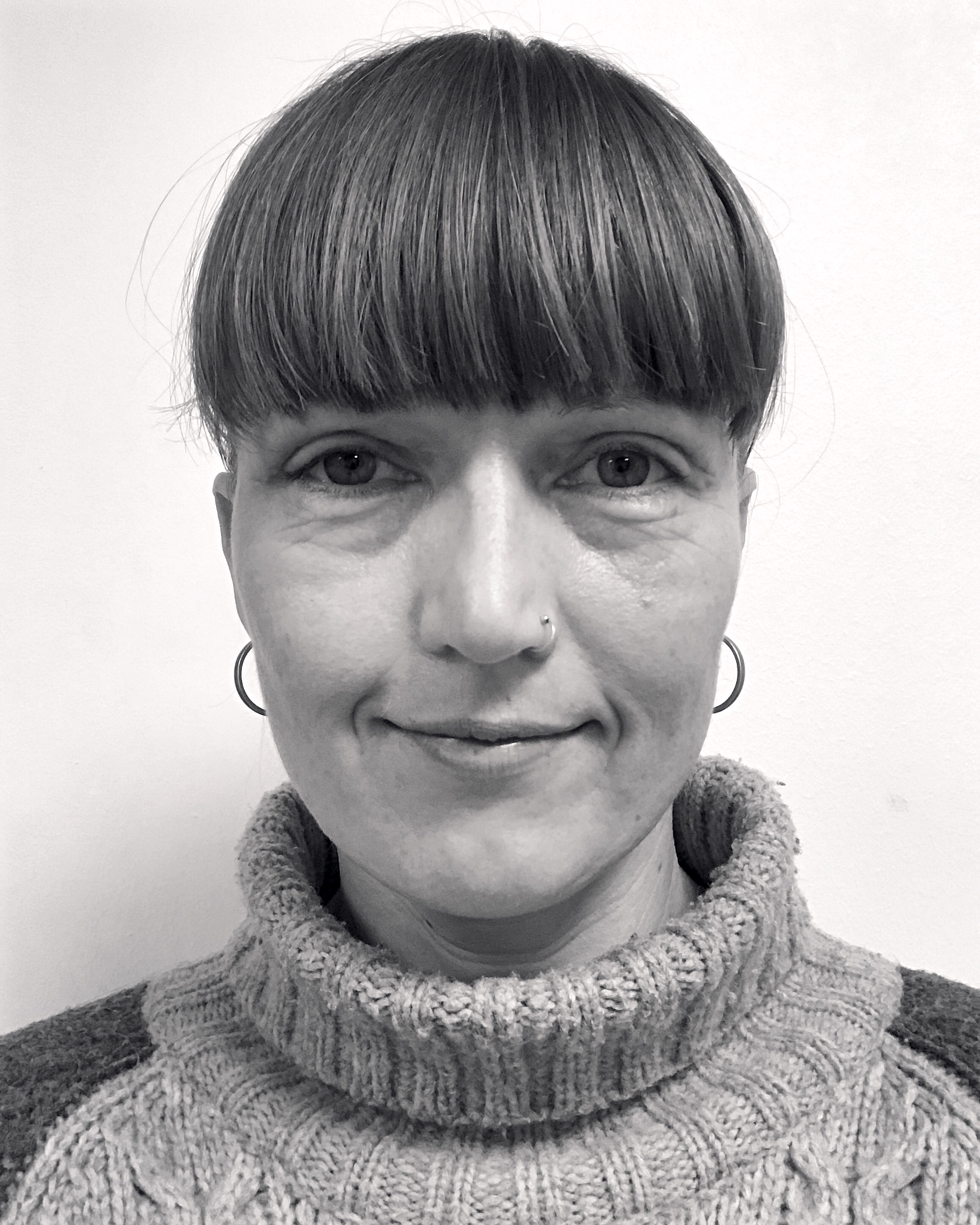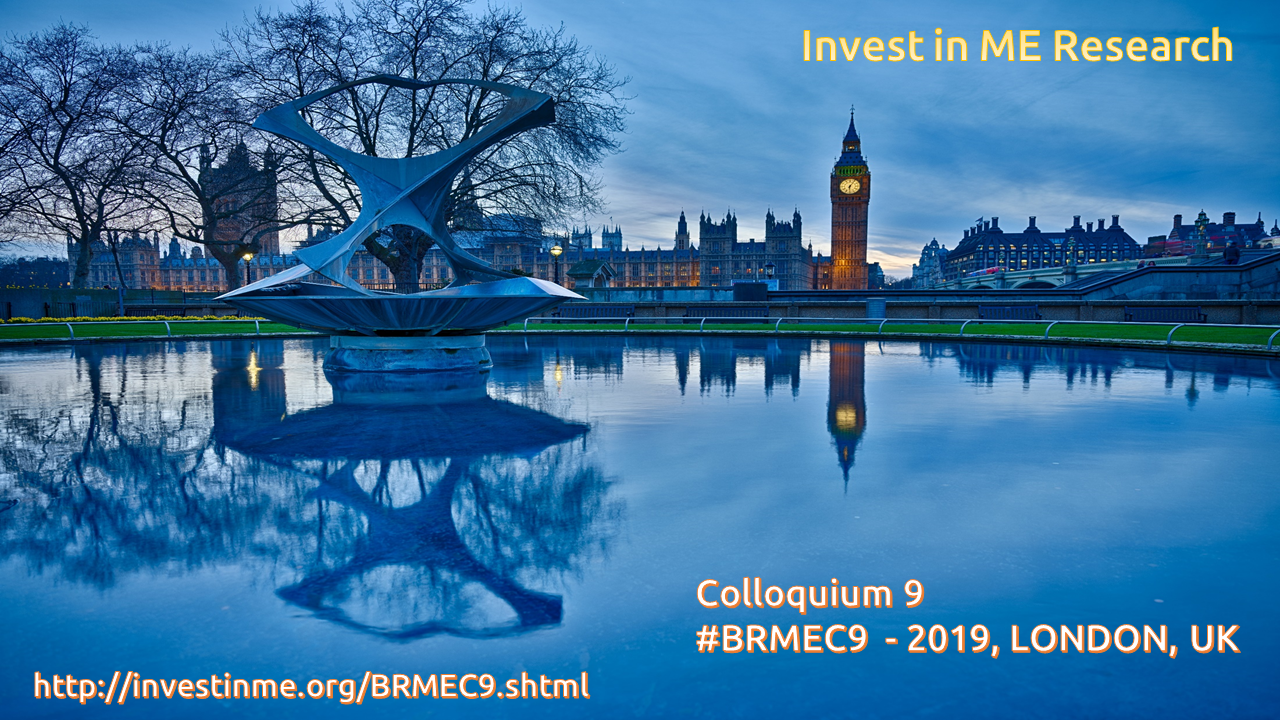
NEXT WORKSHOPS FOR EMERG and EMECC
Status Update 18 November 2019
Five days of European biomedical research and clinical collaboration with these meetings in London has just ended with multiple new cross-site European projects being agreed and discussed and new ventures made.
An outstanding group of European researchers (European ME Research Group - EMERG) and clinicians (European ME Clinicians Council - EMECC) are working together.
A fuller update from the meetings in London is being prepared.
With the expertise available in these two groups, and with plans to further develop these networks, we are very confident that we have finally created a sustainable and forward-thinking movement for making rapid progeress in research and clinical care for ME. We have established multiple working groups with representatives across Europe who will be developing the research strategies going forward and being advised by the clinical group, who also have working groups looking at clinical aspects of ME.
For patients and carers these developments hold out real hope for the future based on European collaboration. Working with our partners in the European ME Alliance this will be the focus of our efforts for the future. Plans are also forming to reorientate the International ME Conference Week in London in May 2020.
We now have strong European groups in EMEA, EMECC and EMERG working together to create a real dynamic force for high quality biomedical research and clinical expertise and education about ME.
As stated in the IIMEC15 welcome message, from IiMER chairman Kathleen McCall, to treat and cure ME we need the infrastructure as well as funding. Sparse resources exist so cross-European projects are necessary. Europe has the resources to build this capacity and resources.
It has been evident for some while that we must create a foundation for sustainable research and we need to recognise that we are forced to start this ourselves in the absence of official support.
This is what IiMER and our supporters have done over the last ten years and we feel we can now focus efforts on sustaining the progress made.
As mentioned in previous months since the conference week in May, to continue to build these foundations two workshops have been organised by Invest in ME Research for November.

EMERG
The first workshop will be a two-day event for the European ME Research Group (EMERG).
EMERG is a concept to bring together the foremost European ME researchers in order to establish an understanding of the Aetiology, Pathogenesis and Epidemiology of ME.
EMERG was intended to create a vision of collaborative European research to increase biomedical research into ME and provide an opportunity to make huge and rapid progress in ME research.
Initial meetings were held some years ago and a number of the original EMERG group members have been meeting, discussing and working together during these years and the initial meetings helped to create good working relationships.
However, due in part to lack of resources, time constraints and due to more empahisis being placed on world-wide international collaboration, the charity concentrated efforts in building up the International Biomedical Research into ME Colloquiums instead as a means to foster collaboration, build new ideas and share knowledge.
It has been increasingly evident, though, that we really do need a European base of research.
After discussions at the BRMEC9 conference it was decided to organise a new meeting of EMERG
and we are very pleased with the response and enthusiasm shown to develop this group.
The two-day workshop will take place in London and we hope that we can maintain the momentum and build on the ideas that we have had for this group, and which are augmented by new ideas from researchers.
Researchers from at least eight European countries will be present at the workshop discussing a wide range of topics and developing ideas. By collaborating across Europe we can harness the best talents from the best institutions.
EMERG is supported by the European ME patient groups and charities within the European ME Alliance (EMEA) to provide a powerful combination of campaigning, raising of awareness, building new research and accumulation of data based on collaboration and sharing of experiences and knowledge, which would allow rapid progress in the building up a strategy of high-quality research into ME.
Our thanks to European ME Alliance Iceland - ME FÉLAG ÍSLANDS - for supporting the Icelandic researchers who will be present.

EMECC
In February this year Invest in ME Research organised the inaugural meeting over three days in London of the European ME Clinicians Council (EMECC).
The first meeting consisted of leading European clinicians who are involved in treating people with Myalgic Encephalomyelitis.
EMECC was organised following an American initiative that was started by Dr Lucinda Bateman and Mary Dimmock.
The aims of the meeting were to bring together clinicians in the field of Myalgic Encephalomyelitis to review the current state of knowledge, to present and discuss the latest initiatives, and to foster collaboration.
We wanted this to become a formal group that will work with the American initiative and be supported by European patient organisations.
Indeed, the European ME Alliance (now representing fifteen countries) would be prominent in supporting this.
We planned for this group to continue to meet and develop the network so that it could improve the knowledge of clinicians in Europe and act as a focal point for healthcare agencies, doctors and media outlets who wish to learn more from experienced clinicians about ME.
In the first meeting there was a very positive and progressive atmosphere and a range of topics was discussed covering diagnosis, treatments, follow-ups, education, research and how the group continues and expands.
Now another workshop spread over three days has been arranged by the charity in November.
The EMECC meeting is designed to overlap with the EMERG meeting - bringing researchers and clinicians together and this is part of the European strategy created by IiMER and which, with the European ME Alliance, forms the nucleus of making rapid progress in research, education and advocacy for ME.
Through these initiatives we hope that we can expedite progress in research and treatment of ME.
This provides a powerful combination of campaigning and raising of awareness, building new research and accumulation of data based on collaboration and sharing of experiences and knowledge, which will allow rapid progress in the building up a strategy of high-quality research into ME.

FURTHER REFERENCES
A Strategy for Research, Treatment and Advocacy for ME
Invest in ME Research has been facilitating research collaboration between individuals and organisations and are funding major research in the UK.
The charity's success in arranging fifteen annual international biomedical research conferences and ten international biomedical research colloquiums and initiating
an international young/early career research network
demonstrates its determination and commitment to find a cause or causes for this devastating disease.
IiMER has European connections and originated and facilitated the formation of the European ME Research Group (EMERG) and and the European ME Clinicians Council (EMECC) and facilitates collaborative links to other researchers and institutes in Europe and Australia and USA.
The foundations are already in place to advance science and provide the promise of better treatment and possible restoration of function and lives back to a section of the community who have received very little help in the past.
Please help us to find the cause of this disease and develop effective treatments to permit patients to regain their lives.
Dr Ian Gibson
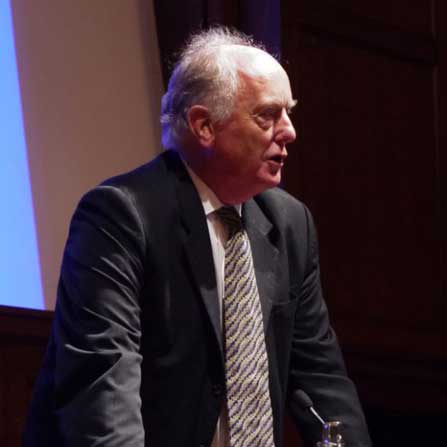
Former Dean of Biological Sciences, UEA
Dr Ian Gibson, former Labour MP for Norwich North, worked at University of East Anglia for 32 years, became Dean of the school
of biological sciences in 1991 and was head of a cancer research team and set up the Francesca Gunn Leukaemia Laboratory at UEA.
In 2011 Dr Gibson received an honorary doctorate of civil law from UEA.
Other Links
Dr Bruce Carruthers

Former Dean of Biological Sciences, UEA
Dr Bruce Carruthers graduated from Kodaikanal International School in India before moving to Canada to study at his father’s alma mater,
Queen’s University, Ontario. His excellence was quickly recognized when he graduated in medicine as a dual gold medalist in Surgery, and Obstetrics and Gynecology.
Following an internship at the Charity Hospital in New Orleans and a residency at the Hospital of the University of Pennsylvania as a
Research Fellow of the American Diabetes Association,
Dr. Carruthers settled with his family in Vancouver.
He earned a Fellowship of the Royal College of Physicians and Surgeons of Canada with the specialty of Internal Medicine.
For many years Dr. Carruthers was an Assistant Professor and a Medical Research Council of Canada Scholar,
lecturing and carrying out research in diabetes and metabolic disorders in the Faculty of Medicine at the University of British Columbia.
From 1978 until his retirement, Dr. Carruthers had a private practice as a Consultant in Internal Medicine, with focus on diabetes and metabolic
disorders and later, Myalgic Encephalomyelitis (ME).
His compassionate nature and adept care improved the quality of life of his patients.
Throughout his outstanding medical career, which spanned more than fifty years, Dr. Carruthers treated more patients inflicted with ME
than any other doctor in Canada.
Other Links
Professor Malcolm Hooper
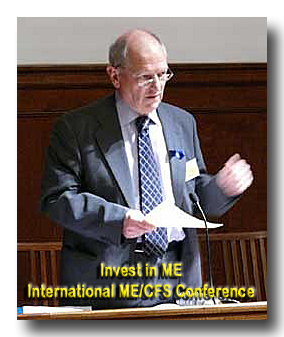
Professor Hooper graduated from University of London and had held appointments at Sunderland Technical College, Sunderland Polytechnic and the University of Sunderland,
where he was made Emeritus Professor of Medicinal Chemistry in 1993.
He has served at many UK universities as well as in India and Tanzania.
He has inaugurated links with Indian research institutions and universities and celebrated 25 years of productive
and on-going links which have,
particularly, involved the design and development of new drugs for tropical diseases and an exploration of natural
products associated with Ayurvedic medicine.
He has published some 50 papers in peer-reviewed journals in the field of medicinal chemistry together with major
reviews on the Chemotherapy of Leprosy,
the Chemistry of Isatogens. Edited one book on the Chemotherapy of Tropical Diseases.
He acted as a referee for a number of important journals and
served on one editorial board. He has served on committees of the Council for National Academic Awards (CNAA), the
World Health Organisation
(WHO) and the Science and Engineering Research Council (SERC).
Emeritus Professor of Medicinal Chemistry, University of Sunderland
Professor Hooper is a member of a number of learned bodies, including
the Royal Chemical Society, the British Pharmacological Society and the Society for Drug Research (SDR),
now renamed the Society for
Medicines Research, where he has served on the committee for 12 years and served as Chairman for 2 years.
This involved the planning
and organising of major national and international conferences. He was appointed Chief Scientific Advisor to the
Gulf Veterans Association (GVA)
and accepted by the Ministry of Defence (MoD) as their nominee on the Independent Panel established to consider
the possible interactions between
Vaccines and NAPS tablets.
He has also served on the Gulf Support Group convened at the Royal British Legion. His involvement with the GVA brought
contact with Chronic Fatigue Syndrome/Myalegic Encephalomyelitis (CFS/M.E.) and related disorders. Gulf War Illness/Syndrome
(GWI/S) has much in common
with M.E./CFS.
He is Patron of the Sunderland and South Shields M.E. Association and a member of the Newcastle Research Group,
which includes eminent
physicians and scientists performing research in to CFS/M.E., where one recent aspect has been the identification of
organochlorine pesticide poisoning
being misdiagnosed as M.E./CFS. He has addressed meetings of the Pesticide Exchange Network and consulted to the
Organo-Phosphate Information Network (OPIN).
He worked with the Autism Research Unit (ARU) at the University of Sunderland for over 20 years, leading to involvement
in biochemical studies to offer help, support and treatment for people with autism. This has also lead to research and
urine-analysis of Indolyl-Acroyl-Glycine (IAG), which is an unusual metabolite found in excess of 90% of people
examined in different groups of GWV, M.E./CFS and Organo-Phosphate (OP) poisoning sufferers. He served on the
General Synod of the Church of England from 1970 to 1980 and he is a Christian Lay Leader, Preacher and Teacher.
He is currently involved in three environmental campaigns: Toxic waste dumping, including campaign against sewage in
the sea presenting to the Select Committee on
Sewage Treatment and Disposal GWI/S, presenting to the Defence Select Committee M.E./CFS and OP/Pesticide poisoning
Professor Simon Carding

Research Leader, Quadram Institute Bioscience, Norwich Research Park, UK
Upon completing postgraduate work at the Medical Research Council’s Clinical Research Centre in Harrow,
Professor Carding “emigrated” to the USA to take up a postdoctoral position at New York University School of Medicine,
and then at Yale University as a Howard Hughes Fellow in the Immunobiology Group at Yale University with Profs Kim Bottomly and Charlie Janeway Jr.
While
at Yale an interest in gamma-delta (γδ) T cells was acquired working closely with Adrian Hayday on molecular genetics and then
with Prof. Peter Doherty to establish their role in (viral) infectious disease.
He left Yale after five years to take up a faculty position at the University of Pennsylvania in Philadelphia where he
developed a research interest in mucosal and GI-tract immunology, performing studies in germfree mice with Prof John Cebra that helped establish
the role of gut microbes in the aetiology of inflammatory bowel disease (IBD).
After 15 years in the USA, he returned to the UK to take up the Chair in Molecular Immunology at the University of Leeds where he established a new research
programme on commensal gut bacteria and Bacteroides genetics leading to the development of a Bacteroides drug delivery platform that is being used
for developing new interventions for IBD and for mucosal vaccination.
In 2008 he was recruited by UEA and IFR to develop a gut research programme, taking up the Chair of Mucosal Immunology at UEA-MED and the position of head
of the Gut Biology Research Programme at IFR, which later became part of the Gut Health and Food Safety (GHFS) Programme.
GHFS research covers a broad area of gut biology including epithelial cell physiology, mucus and glycobiology, mucosal immunology,
commensal microbiology, foodborne bacterial pathogens, and mathematical modelling and bioinformatics.
The success of this programme has led to the establishment of the Gut Microbes and Health research programme
that is integral to the research agenda of The Quadram Institute.
Other Links
Professor Angela Vincent
Emeritus Professor of Neuroimmunology, University of Oxford
Professor Vincent is Emeritus Professor of Neuroimmunology at the University of Oxford, and an Emeritus Fellow of Somerville College. She holds an Honorary Consultant position in Immunology and runs the Clinical Neuroimmunology service which is an international referral centre for the measurement of antibodies in neurological diseases.
Together with colleagues she collaborates with neurologists worldwide. She was formerly Head of Department of Clinical Neurology (2005-2008), and is a Past President of the International Society of Neuroimmunology, and an Associate Editor of Brain.
She was a co-applicant and group leader of OXION, the Wellcome Trust-funded Integrative Physiology Initiative "Ion channels and Diseases of Electrically Excitable Cells". She is a member of Faculty of 1000 (Neuroscience, Neurobiology of Disease and Regeneration)
Her major interest is in the role of autoimmunity in neurological diseases, including multiple sclerosis and auto-antibody mediated ion channel and receptor disorders. Recent advances have included (a) the discovery that maternal antibodies to different fetal proteins can cause rare neuromuscular disorders, and may be involved in some forms of autism or other neurodevelopmental disorders; (b) the definition and characterisation of a new form of myasthenia gravis associated with antibodies to a receptor tyrosine kinase, MuSK, that performs an important maintenance role at the neuromuscular junction; and (c) the recognition that some central nervous system disorders, involving memory loss, seizures, movement disorders, can be caused by antibodies to potassium ion channels and to various receptor proteins.
In these, and several other conditions, new ways are being devised to measure the pathogenic antibodies for better clinical diagnosis, and establishing model in vitro and in vivo systems for investigation of the pathophysiology of the diseases. Her group also works, in collaboration with Profs David Beeson and Nick Willcox, on the genetics of myasthenia and the factors that determine autoimmune responses to the main target, the acetylcholine receptor.
Dr Amir Landi
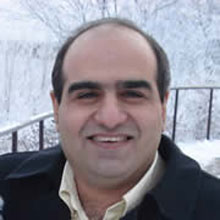
Research Scientist, Department of Medical Microbiology & Immunology, University of Alberta, Canada
Dr Landi works at Professor Michael Houghton's laboratory in the Dept. of Medical Microbiology & Immunology at the University of Alberta, Canada. He is a member of the ME/CFS committee of the Alberta Medical Association and Research & Medical Advisor, National ME/FM Action Network, Canada.
Other Links
Professor Jonathan Edwards
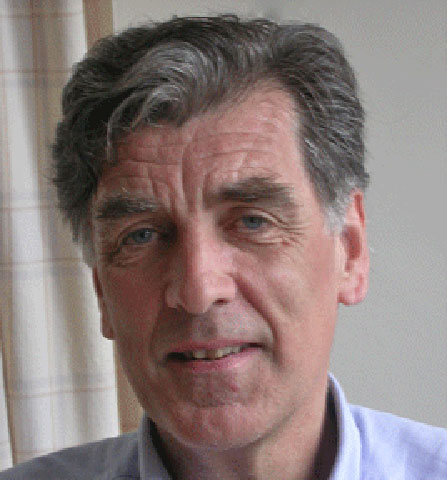
Emeritus Professor of Connective Tissue Medicine University College London (UCL)
Professor Jonathan Edwards, of UCL's Department of Medicine, announced a highly original new treatment for rheumatoid arthritis in October 2000. His team has conducted trials of a new combination of drugs on patients who have suffered from rheumatoid arthritis for as long as 20 years; all but two of the 22 patients have so far shown marked improvements in their symptoms of the disease. More information IIMER Rituximab Clinical Trial for ME Professor Edwards has been the charity's advisor. He has played a major part in initiating the IiMER rituximab clinical trial project which IiMER and UCL initiated - click here
Other Links
Associate Professor Mady Hornig

Associate Professor, Columbia University Mailman School of Public Health, New York, USA
Mady Hornig, MA, MD is a physician-scientist and Associate Professor of Epidemiology at the Columbia University Mailman School of Public Health,. She did her undergraduate studies as a College Scholar at Cornell, received an MA in Psychology from The New School for Social Research and an MD from The Medical College of Pennsylvania and completed her residency in psychiatry at The Medical Center Hospital of Vermont and an NIMH/NRSA Neuropsychopharmacology Fellowship at the University of Pennsylvania. Her research leverages large epidemiologic cohorts, novel bench science and animal model studies to determine how microbial, immune and toxic exposures impact upon the brain across the life course, resulting in disorders such as autism, attention-deficit/hyperactivity disorder (ADHD), Pediatric Autoimmune Neuropsychiatric Disorders Associated with Streptococcal infection (PANDAS), mood disorders, schizophrenia, myalgic encephalomyelitis/chronic fatigue syndrome (ME/CFS) and age-related cognitive deficits.
Dr. Hornig is internationally known for her work in the growing research arena exploring the mechanisms of gut-immune-brain axis functioning, seeking clues to both the understanding of the roots of dysfunction as well as uncovering pathways that strengthen individual resiliency. She has a keen interest in how diet, exercise and environmental factors affect each individual’s intestinal bacteria – the so-called gut microbiome – which then influences brain function through alterations in blood-borne molecules.
She has identified naturally-occurring substances that appear to strengthen resistance to certain disease states affecting the brain, and is pursuing these as candidates for prevention and intervention in ME/CFS and autism. She uses immune profiling, metabolomic, proteomic, epigenetic and microbiome approaches to identify prenatal and birth biomarkers for brain disorders in large prospective studies in Scandinavia as well as the US. She is also applying these approaches to uncover markers of disturbed immunity and metabolism correlating with the severe clinical deficits that underlie ME/CFS, work launched with support from the Hutchins Family Foundation/Chronic Fatigue Initiative, the National Institutes of Health and the crowd-funding initiative, The Microbe Discovery Project. Perhaps most exciting is that new ME/CFS subsets that appear to have different triggers and may respond differentially to treatment are now being identified through her work.
Dr. Hornig’s approach is enriched by her unusual combination of decades of experience as a clinical researcher, her acumen in defining novel neuropharmacological and nutritional approaches for brain disorders and her ability to carefully tease out factors that enhance resiliency to disease.
In 2004, Dr. Hornig presented to the Institute of Medicine Immunization Safety Review Committee and testified twice before congressional subcommittees regarding the role of infections and toxins in autism pathogenesis and has lectured on ME/CFS throughout the world. She has over 120 peer-reviewed publications, has edited several books, and has received many academic awards. Her work has been featured by the New York Times, the Los Angeles Times, The Washington Post, The Wall Street Journal, The Atlantic, Discover Magazine, Nature Medicine, Science, Wired, the Huffington Post, O Magazine, CBS News, and This Week in Virology.
She is a member of the President’s Council of Cornell Women, and maintains a strong connection with organizations focused on disabilities, such as The Microbe Discovery Project, #MEAction, #MillionsMissing and The Global Autism Project; the environment, including Riverkeeper and the Collaborative on Health and the Environment; and music, including a close association with Jazz at Lincoln Center as a member of the Chairman’s Circle and a member of Unsettled Scores, a community choir.
Other Links
Dr Jo Cambridge

Principal Research Fellow Inflammation, Div of Medicine Faculty of Medical Sciences, UCL
Her group focuses its interests on B cell depletion (an idea which they introduced (with the Professor Jo Edwards) approximately 10 years ago for the treatment of rheumatoid arthritis), exploring more precisely how the technique works and trying to explain the marked variation in response between different patients.
Other Links
Dr Amolak Bansal

Consultant Clinical Immunology and Immunopathology Epsom and St Helier University Hospitals NHS Trust Surrey, UK
Dr. Bansal trained in immunology and allergy from 1989 to 1993 at St. Mary's Hospital in Manchester and at Hope Hospital in Salford. From here he spent five years (1993-1997) as Senior Lecturer and Consultant in Clinical Immunology in the Department of Medicine at the Princess Alexandra Hospital in Brisbane, Australia. From 1997 to the present date Dr. Bansal has worked as a Consultant in Clinical Immunology and Immunopathology at Epsom and St Helier University Hospital. Dr Bansal's key interests lie in allergy, autoimmunity, CFS/ME and immunodeficiency. Dr Bansal is involved in the gut microbiota study at UEA, the IIMER rituximab clinical trial and Autoimmunity and ME, a study involving the hypothalamus - all projects funded by Invest in ME. Research from Dr Bansal
Other Links
Dr Oystein Fluge

Dr Oystein Fluge
Oystein Fluge received medical degree in 1988 at the University of Bergen, and is a specialist in oncology since 2004. He has worked as a Research Fellow with support from the Norwegian Cancer Society and is now chief physician at the Cancer Department, Haukeland University Hospital. Doctoral work emanates from the Surgical Institute and Department of Molecular Biology, University of Bergen.Other Links
Prof Olav Mella

Professor Olav Mella
Professor Mella has performed clinical trials to test the benefit of B-cell depletion therapy using Rituximab in ME/CFS patients. Dr. Olav Mella of Haukeland University Hospital in Bergen, Norway began his investigation of Rituximab’s effects on CFS after treating several Hodgkin’s Lymphoma patients who had long standing cases of CFS prior to developing cancer. Professor Mella and Dr Fluge have published a paper "Benefit from B-Lymphocyte Depletion Using the Anti-CD20 Antibody Rituximab in Chronic Fatigue Syndrome. A Double-Blind and Placebo-Controlled Study"Other Links
Dr Claire Hutchinson

Lecturer in the College of Medicine, Biological Sciences and Psychology at the University of Leicester
Claire Hutchinson is a vision scientist.
The majority of her work is concerned with how visual sensory information is encoded by the human visual system.
Her research includes healthy visual perception, age-related visual decline, and visual markers of 'non-visual' illnesses.
It is this latter strand of research that led her to study vision-related problems in ME/CFS.
Other Links
Professor Jonas Bergquist

Full Chair Professor in Analytical Chemistry and Neurochemistry at the Department of Chemistry, Uppsala University, Sweden
Professor Begquist has a background as MD, Associate Professor of Clinical Neuroscience , Sahlgrenska University Hospital and the University of Gothenburg. Since 1999 , he has been a researcher in Uppsala, Sweden, and in 2005 was appointed professor of analytical chemistry and neurochemistry at the Department of Chemistry - BMC , Uppsala University. From 2011 he worked also as an adjunct professor of pathology at the University of Utah, Salt Lake City, Utah, USA.Other Links
Professor Ian Charles

Director Institute of Food Research, Norwich, UK
Professor Ian Charles joins the Institute of Food Research in May 2015 to lead the programme to develop the UK’s new Centre for Food & Health to be based at the Norwich Research Park. Professor Charles is returning to the UK from Australia where he was Director of the ithree institute, University of Technology, Sydney. Professor Charles has over 30 years’ experience in academic and commercial research. His academic career has included being a founding member of The Wolfson Institute for Biomedical Research at University College London, one the UK’s first institutes of translational medicine. He has also worked in the pharmaceutical industry at Glaxo Wellcome, and has been founder and CSO of biotech companies in the area of infectious disease, including Arrow Therapeutics, sold to AstraZeneca, and Auspherix a venture capital backed company founded in 2013. His current research interests include infectious diseases as well as the microbiome and its impact on health and wellbeing. The new Centre for Food & Health will provide a step change for food and health research, and the translation of science by industry, to benefit society and the UK economy. The Centre will be located at the Norwich Research Park, one of Europe’s largest single-site concentrations of research in Food, Health and Environmental sciences. The multidisciplinary Centre aims to bring together the Institute of Food Research and aspects of the University of East Anglia’s Faculty of Science and the Norwich Medical School with the regional gastrointestinal endoscopy facility at the Norfolk and Norwich University Hospital. With a unique integration of diet, health, nutrition and medicine under one roof, linking closely to world class plant and crop research at the John Innes Centre and bioinformatics at The Genome Analysis Centre (both also located on the Norwich Research Park), it will have the potential to deliver clinically validated strategies to improve human health and wellbeing.Other Links
The Next Generation of Researchers
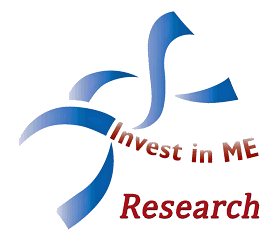
Invest in ME Research Students and Researchers
The Next Generation of Scientists
.................
Other Links
- Fane Mensah, UCL [ME/CFS – Through The Eyes of a Young Researcher]
- Navena Navaneetharaja, UEA/IFR
- Bharat Harbham, UEA
- Daniel Vipond, UEA/IFR [UK Gut Microbiota Research Update]
Professor Sonya Marshall-Gradisnik

The National Centre for Neuroimmunology and Emerging Diseases (NCNED), Griffiths University, Australia
Professor Marshall-Gradisnik is one of Australia's foremost researchers in the area of neuroimmunology and has been instrumental in establishing the Public Health and Neuroimmunology Unit (PHANU) at Bond University. Much of her work relates specifically to autoimmunity in Chronic Fatigue Syndrome sufferers and she is regularly asked to speak to community groups on behalf of Queensland Health and NSW Health. Her research in the area of exercise immunology has also contributed to the body of knowledge relating to the effect of doping in sport and she serves as Sports Medicine Australia's national spokesperson in this area. The vital research conducted by Professor Marshall has attracted more than $1 million in grant funding and she has produced 21 peer-reviewed papers, five book chapters and one provisional patent. In 2008 Dr Marshall was joint leader of the Bond University team responsible for developing the the BioSMART program. The team was awarded a prestigious Australian Teaching and Learning Council Award (formerly known as the Carrick Award) for Outstanding Contribution to Student Learning and for the quality of student learning over a sustained period of time. Professor Marshall-Gradisnik is also leading The National Centre for Neuroimmunology and Emerging Diseases (NCNED), a research team situated at Griffith University on the Gold Coast. The team focuses on Myalgic Encephalomyelitis.Other Links
Professor Don Staines MBBS MPH FAFPHM FAFOEM

The National Centre for Neuroimmunology and Emerging Diseases (NCNED), Griffiths University, Australia
Professor Staines has been a public health physician at Gold Coast Population Health Unit. He has worked in health services management and public health practice in Australia and overseas. His interests include collaborative health initiatives with other countries as well as cross-disciplinary initiatives within health. Communicable diseases as well as post infectious fatigue syndromes are his main research interests. A keen supporter of the Griffith University Medical School, he enjoys teaching and other opportunities to promote awareness of public health in the medical curriculum. He is now Co-Director at The National Centre for Neuroimmunology and Emerging Diseases (NCNED), Griffiths University in Australia
Dr John Chia
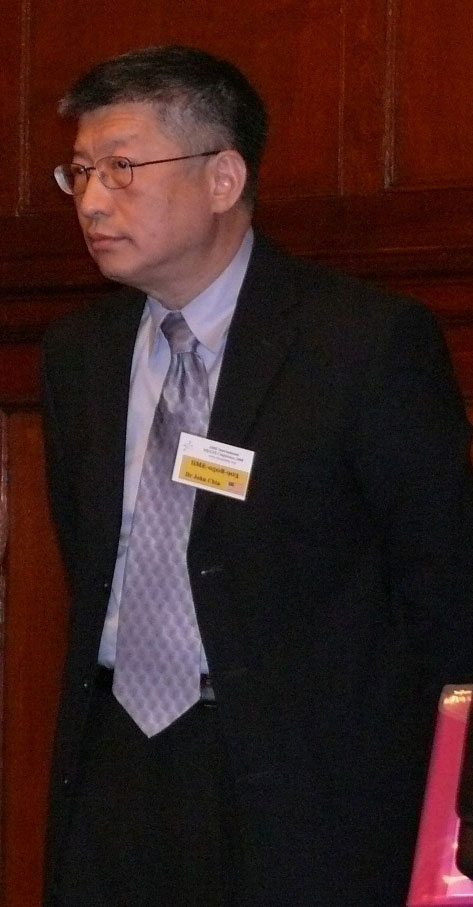
Infectious Disease Specialist, Torrance, California, USA
Dr Chia is an infectious disease specialist practicing in Torrance, California, USA and has published research recently (Chronic fatigue syndrome associated with chronic enterovirus infection of the stomach) on the role of enteroviruses in the aetiolgy of ME/CFS – an area which has been implicated as one of the triggers by a number of studies.There are more than 70 different types of enteroviruses that can affect the central nervous system, heart and muscles, all of which is consistent with the symptoms of ME/CFS. By analyzing samples of stomach tissue from 165 patients with CFS, Dr. Chia's team discovered that 82% of these individuals had high levels of enteroviruses in their digestive systems. Dr Chia's research may result in the development of antiviral drugs to treat the debilitating symptoms of ME/CFS.
Dr Chia is President of the Enterovirus Foundation and Assistant Professor at the UCLA School of Medicine.
Other Links
Dr Neil Harrison

Honorary Consultant Neuropsychiatrist, Brighton & Sussex Medical School, UK
Dr Harrison's' work in the laboratory focuses on understanding how infection or inflammation in the body interacts with the brain.For most these symptoms are usually short lived and relatively mild. However, when the immune system is activated for long periods, such as in people suffering from rheumatoid arthritis, they can become extremely debilitating or even life-threatening.
Understanding how the immune system interacts with the brain is a crucial first step that will form the foundations for future development of novel therapies targeting these common and disabling symptoms.
Most of his studies utilise a combination of functional brain imaging (e.g. fMRI, FDG-PET, EEG, polysomnography), experimental models of inflammation, custom cognitive tasks and diverse measures of peripheral immune status.
Other Links
- Gray matter textural heterogeneity as a potential in-vivo biomarker of fine structural abnormalities in Asperger syndrome. Radulescu, E., Ganeshan, B., Minati, L., Beacher, F.D.C.C., Gray, M.A., Chatwin, C., Young, R.C.D., (...), Critchley, H.D. 2012 Pharmacogenomics Journal (in Press)
Professor Betsy Keller
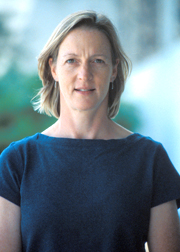
Ithaca College, USA
Professor Keller is Professor Ithaca College, Dept. of Exercise and Sport Sciences, Ithaca, NY.RESEARCH / CLINICAL FOCUS: Since 2003 Professor Keller has tested persons ill with Myalgic Encephalomyelitis/Chronic Fatigue Syndrome (ME/CFS) for purposes of research and/or to provide an objective assessment of functional capacity and ability to perform and recover from physical work. Often, these individuals seek an objective indication of illness status to apply for disability benefits. A two-day exercise test protocol has shown to be instrumental in delineating abnormal responses to and recovery from exercise in ME/CFS patients. Her report of test results and interpretation has been successful in many cases to support an argument for disability coverage.
There are only a few researchers in the USA who have performed and interpreted the two-day exercise test protocol on ME/CFS patients, and therefore have observed first-hand the anomalous multisystem responses of these patients 24 hours post-exercise.
Professor Keller continues to expand the small body of peer-reviewed evidence of the abnormal recovery response to physical activity in ME/CFS so that most, if not all clinicians, researchers, health insurers and patient family members also understand the deleterious impact of this illness.
To that end, She has collaborated on an NIH R21 grant with PI, Maureen Hanson, from Cornell University to study the effects of exercise in ME/CFS on parameters of physiological and immune function.
Together they continue to analyze this data and other data collected to better understand how to help those with ME/CFS.
Other Links
BRMEC5 Keynote Speaker: Professor David Brooks
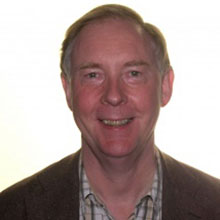
Invest in ME are pleased to announce that giving a keynote speech at BMEC5 will be Professor David Brooks from Imperial College, London. Professor Brooks is Hartnett Professor of Neurology in the Department of Medicine.
Professor Brooks' research involves the use of positron emission tomography and magnetic resonance imaging to diagnose and study the progression of Alzheimer's and Parkinson's diseases in life and to validate imaging biomarkers for therapeutic trials.
Professor Brooks will be giving a keynote speech on Imaging Inflammation and Its Role in Neurodegeneration. This is important for understanding and evaluating the role of imaging in diagnostics and may aid researchers involved in ME-related imaging studies.
Professor David Brooks MD, DSc, FRCP, FMedSci
To date, Professor Brooks has published over 350 reports in peer reviewed journals, including Nature and has an h index of 97. His research is supported by grants from the EU FP7 programmes, UK Medical Research Council, the Alzheimer's Research Trust, Parkinson's UK, the Michael J Fox Foundation, Lundbeck Foundation, Danish Council for Independent Research, and industry. He is Chairman of the Executive Committee of the EMBL Nordic Hub at Aarhus University and is a member of the scientific advisory board of Alzheimer UK. He has been a member of the scientific advisory boards of the German Dementia and Parkinson networks, the Austrian KLIF Science Fund, the Research Advisory Panels of the UK Parkinson's Disease Society, Inserm, the Michael J. Fox Foundation (2002-2006), UK Medical Research Council Neuroscience and Mental Health Board (2004-2007), UK Huntington's Disease Association, and was Chairman of the Scientific Issues Committee of the Movement Disorder Society (1998-2002) and a Director of the International Society of Cerebral Blood Flow and Metabolism (1993-1997). He was Chairman of the Council of Management of the UK Parkinson's Disease Society 1997-8. He is an Associate Editor of Brain and on the Editorial Boards of Parkinsonism and Related Disorders, Basal Ganglia, Journal of Parkinson's Disease, Clinical Neurology and Neurosurgery, Synapse, Molecular Imaging and Biology, Journal of Neurotherapeutics, and Current Trends in Neurology. He was on the editorial boards of the Journal of Neural Transmission, Journal of Neurology, Neurosurgery, and Psychiatry and Movement Disorders. In 2001 he was elected a Fellow of the Academy of Medical Science, UK. In 2002 he was invited to give the Stan Fahn Lecture at the International Congress of Movement Disorders, Miami, in 2003 the George Cotzias Lecture in Madrid, in 2004 the Charles E Wilson Lecture, the Psychobiology Institute, Jerusalem March 2004, in 2005 the Kuhl-Lassen lecture at the Society of Nuclear Medicine, Toronto, and in 2006 the Sprague lecture at UC Irvine.
Professor David Brooks BioDr Daniel Peterson
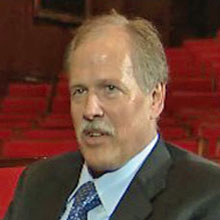
Former Dean of Biological Sciences, UEA
With over 25 years of medical practice, Dr Daniel L. Peterson has become a sought-after internist for diagnosing difficult and complex medical cases.
When several patients in Incline Village became ill with symptoms that resembled persistent mononucleosis, Daniel Peterson was one of the first physicians to recognize an outbreak of what is known as ME/Chronic Fatigue Syndrome (ME/CFS). He became a pioneering physician and researcher in understanding the biological characteristics and methods for diagnosing, managing and treating ME/CFS. He has also performed major studies of Ampligen as a treatment for ME/CFS, and studying the possible role of human herpes virus 6 (HHV-6) in CFS patients.
Dr. Peterson's experience as both a clinician and a research collaborator provides a unique perspective on CFS/ME for developing translational science.
Other Links
Professor Maureen Hanson

Liberty Hyde Bailey Professor, Department of Molecular Biology and Genetics, Cornell University, New York, USA
Maureen Hanson is Liberty Hyde Bailey Professor in the Department of Molecular Biology and Genetics at Cornell University in Ithaca, NY. Previously she was on the faculty of the Department of Biology at the University of Virginia in Charlottesville and an NIH NRSA postdoctoral fellow at Harvard, where she also completed her Ph.D. degree. While most of her prior research has concerned cell and molecular biology in plant cells, she began a research program on ME/CFS after noting at a 2007 IACFS meeting the paucity of molecular biologists studying the illness. Her lab was part of the 2012 multicenter study organized by Ian Lipkin's group at Columbia University to assess the actual role of XMRV in ME/CFS. Dr. Hanson has a current project to examine the microbiome of ME/CFS patients and controls, in collaboration with Dr. Ruth Ley (Cornell Microbiology) and Susan Levine, M.D. (Manhattan, NY). Dr Levine is also collaborating with Dr. Hanson on an immune cell gene expression project that involves Dr. Fabien Campagne and Dr. Rita Shaknovich at Weill Cornell Medical School in New York City. Dr. Hanson's third project concerns analysis of blood samples from individuals performing a two-day cardiopulmonary exercise test at Ithaca College under the supervision of Dr. Betsy Keller.
Other Links
Professor Jonas Blomberg
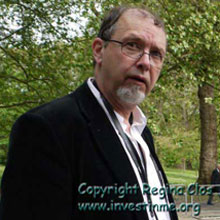
Emeritus Professor of Clinical Virology, Department of Medical Sciences, Uppsala University, Sweden
Professor Jonas Blomberg is an MD and PhD, graduating at the University of Gothenburg. Has worked with Lipids at the department of Medical Biochemistry 1965-1972 as a Clinical Virologist in Gothenburg 1972-1979 and as a postDoc at John Stephensons Lab at NCI Frederick on retroviruses 1979-1981. He then worked as a Clinical Virologist in Lund, Sweden 1981-1995 and then as a professor of Clinical Virology in Uppsala 1996- to the present.
His main fields of interest are: Retrovirology, Bioinformatics, Clinical Virology and broadly targeted and multiplex methods for detection of microbial nucleic acid.
He also is interested in evolution and Infection biology.
Professor Blomberg is on the editorial board of Journal of Virology http://jvi.asm.org/site/misc/edboard.xhtml.
Other Links
Professor James Baraniuk
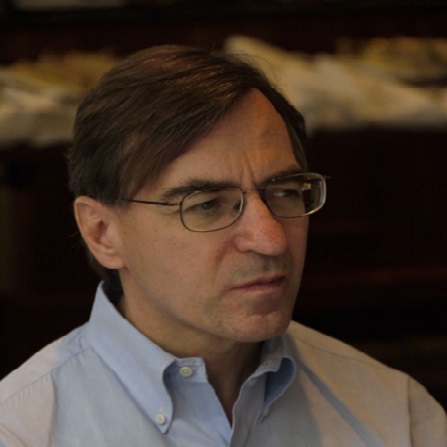
Professor of Medicine at Georgetown University Medical Centre, washington, USA
James N. Baraniuk was born in Alberta, Canada, south of Banff. He earned his honours degree in chemistry and microbiology, medical degree, and unique bachelor's degree in medicine (cardiology) at the University of Manitoba, Winnipeg, Canada. Thereafter, he moved to Akron, OH, USA, for his internship and internal medicine residency at St Thomas Hospital. After another year of internal medicine residency at Duke University Medical Center, Durham, NC, he trained with Dr C.E. Buckley, III, in allergy and clinical immunology. He moved to the laboratory of Dr Michael Kaliner at the National Institute of Allergy and Infectious Diseases, Bethesda, MD, and there began his long-standing collaboration with Dr Kimihiro Ohkubo. After 2 years studying neuropeptides, he joined Dr Peter Barnes' laboratory at the National Heart and Lung Institute, Brompton Hospital, London, UK. Dr Baraniuk returned to Washington, DC, and Georgetown University, where he is currently Associate Professor with Tenure in the Department of Medicine.
Other Links
Professor Ronald Davis
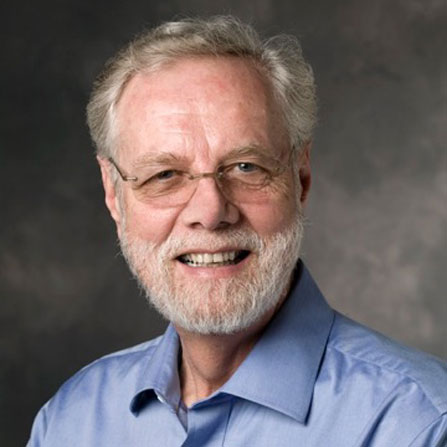
Professor of Biochemistry and Genetics at the Stanford School of Medicine in Stanford, California, USA
Ronald W. Davis, Ph.D., is a Professor of Biochemistry and Genetics at the Stanford School of Medicine in Stanford, California.
He is a world leader in the development of biotechnology, especially the development of recombinant DNA and genomic methodologies and their application to biological systems.
At Stanford University, where he is Director of the Stanford Genome Technology Center, Dr. Davis focuses on the interface of nano-fabricated solid state devices and biological systems.
He and his research team also develop novel technologies for the genetic, genomic, and molecular analysis of a wide range of model organisms as well as humans.
The team's focus on practical application of these technologies is setting the standard for clinical genomics.
Other Links
Doris Jones MSc

Medical Researcher, UK
Doris Jones is an independent medical researcher who investigates the dangers of drugs, particularly those causing ME.
She has been involved in ME issues since 1989 - since her son developed ME in 1980 aged 12 1/2. She carried out a very large multifactorial study into ME for which she was awarded an MSc in 1992 and has shown the results of that study, and subsequent independently conducted studies, at various international conferences. She was also a Reference Group member to the CMO's Working Group on CFS/ME and submitted numerous documents to that group, including results of a long-term follow-up study. She have recently made two submissions to the Gibson Inquiry - most of these details are on the 25% ME group website. Subsequently she had 2 articles published on exactly these links and associations, one was published as a Second Opinion item in the What Doctors Don't Tell You newsletter, Dec.1993, the other - a much more comprehensive overview piece with many references - was published in the March 1997 issue of Yoga & Health.
In her own research she has identified another specific group (a possible subgroup) of ME/CFS patients, i.e. those who attribute the onset of ME on an exacerbation of their existing illness to the use of the antibiotic Septrin / Bactrim (generic name Cotrimoxazole).
She has performed 2 separate studies on such patients, details of which were shown at the 2 international conferences on CFS and Related Disorders in 1995 and 1999 in Brussels and elsewhere. The abstract of the first of these studies was published in the Journal of Chronic Fatigue Syndrome, 1996. This particular antibiotic was severely restricted in the UK in 1995 (and in Sweden already about 10 years earlier!). She has covered this particular topic in an article published in the November 1996 issue of Yoga & Health and again the DoH, the Health Select Committee and just recently the Gibson Inquiry have been informed of these links.
She has notified the Health Select Committee of these links for some of their inquiries (and indeed much earlier in 1992 the DoH!), and just recently has submitted evidence to the Gibson Inquiry.
Doris strongly believes that the link between vaccines and some cases of ME should be properly investigated as a matter of urgency.
Dr Vicky Whittemore
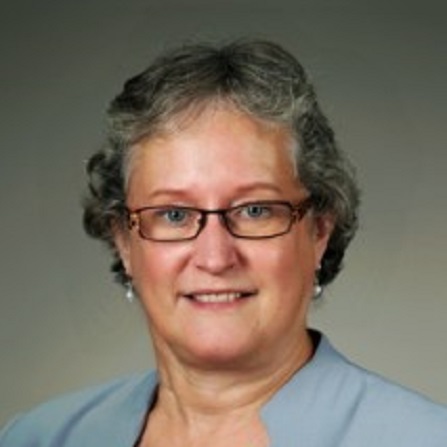
Program Director in the National Institute of Neurological Disorders and Stroke at the National Institutes of Health in the United States.
Dr. Whittemore is a Program Director in the Synapses, Channels and Neural Circuits Cluster. Her interest is in understanding the underlying mechanisms of the epilepsies including the study of genetic and animal models of the epilepsies.
The major goal is to identify effective treatments for the epilepsies and to develop preventions. Dr. Whittemore received a Ph.D. in anatomy from the University of Minnesota, followed by post-doctoral work at the University of California, Irvine, and a Fogarty Fellowship at the Karolinska Institute in Stockholm, Sweden.
She was on the faculty of the University of Miami School of Medicine in The Miami Project to Cure Paralysis prior to working with several non-profit organizations including the Tuberous Sclerosis Alliance, Genetic Alliance, Citizens United for Research in Epilepsy (CURE), and the National Coalition for Health Professional Education in Genetics (NCHPEG).
She also just completed a four-year term on the National Advisory Neurological Disorders and Stroke Council.
Other Links
Professor Leonard Jason PhD
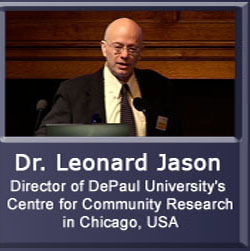
DePaul University, Chicago, USA
Professor Jason has been among the most prolific of all ME/CFS researchers.
For more than a decade, Professor Jason and his team at DePaul University's Centre for Community Research in Chicago have worked to
define the scope and impact of ME/CFS worldwide.
Professor Jason was Vice President of the International Association for Chronic
Fatigue Syndrome (now the IACFS/ME) and has been a key driver of CFS research since 1991, and is uniquely positioned to support
collaboration between CFS researchers, patients, and government decision makers.
His studies have shown that the direct and indirect costs of ME/CFS amount
to $20 billion in the U.S. each year, and more than 1 million people suffer from ME/CFS as opposed to
the estimated 20,000 people originally reported by the
CDC (Centers for Disease Control and Prevention).
Professor Nora Chapman, PhD
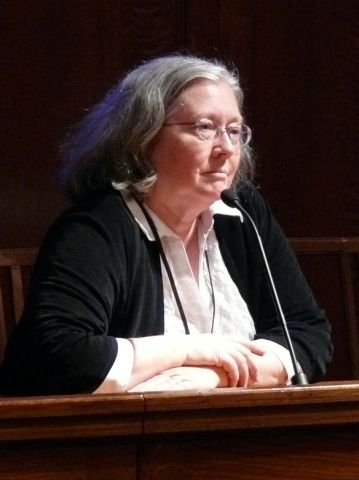
University of Nebraska Enterovirus Research Laboratory, USA
Nora Chapman, PhD is a Research Scientist at the University of Nebraska Enterovirus Research Laboratory and Associate Professor at
the University of Nebraska. Dr. Chapman studies persistent coxsackie infections in murine models of chronic myoccarditas
and dilated cardiomyopathy. She and her associates have demonstrated that selection of defective enterovirus
in heart and other tissues leads to persistent infections despite active antiviral immune responses.
Dr. Chapman is presently studying the mode of selection of these viruses and the effects of replication of these viruses upon infected cell function. Dr. Chapman and her associates at the University of Nebraska are further investigating Dr. John Chia's work in regards to enterovirus in the gut biopsies.
Source : Enterovirus Foundation
Dr Paul Cheney MD, PhD
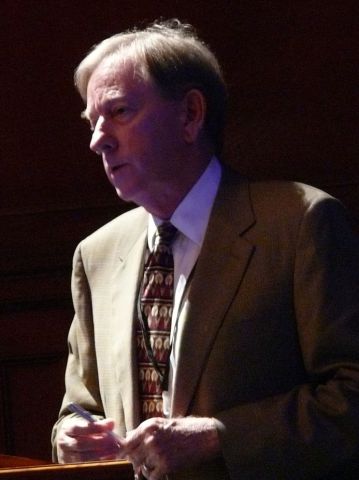
Cheney Clinic in Asheville, North Carolina, USA
Dr Paul Cheney, MD, PhD, is Medical Director of the Cheney Clinic in Asheville, North Carolina. For more than 25 years, Dr Cheney has been a pioneering clinical researcher in the field of ME/CFS and has been an internationally recognized authority on the subject of ME/CFS. He has published numerous articles and lectured around the world on ME/CFS and is author/co-author of numerous publications and scientific presentations about ME/CFS.
Dr Jonathan Kerr BSc, MBBCh, MD, PhD, FRCPath
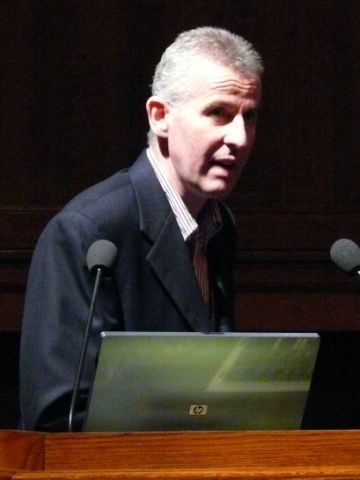
Department of Microbiology, West Suffolk Hospital Foundation Trust, UK
Jonathan Kerr was Sir Joseph Hotung Senior Lecturer in Inflammation, St George's University of London. Jonathan Kerr qualified in medicine from Queen’s University of Belfast (1987), and completed training as a medical microbiologist (1995). He has worked as a microbiologist in Belfast, Manchester and London, taking up post as a Consultant Senior Lecturer in Microbiology at Royal Brompton Hospital / Imperial College in June 2001, and then Sir Joseph Hotung Clinical Senior Lecturer in Inflammation at St George’s University of London in 2005. His interest in Chronic Fatigue Syndrome (CFS) began during a study of the consequences of parvovirus B19 infection, when he showed that a percentage of infected cases developed CFS which persisted for several years. He is now the principal investigator in a programme of research in CFS. This involves development of a diagnostic test using mass spectrometry, analysis of human and viral gene expression in the white blood cells, and clinical trials of immunomodulatory drugs. Dr. Jonathan Kerr and colleagues at St. George’s University of London reported in the July 27, 2005 issue of the Journal of Clinical Pathology that a preliminary study of 25 CFS patients and 25 matched healthy controls revealed abnormalities in 35 of 9,522 genes analyzed using microarray technology. Polymerase chain reaction studies showed the same results for 16 of these genes. The study, and its results, raises some important questions. The first of which pertains to the need for funding of microbiological CFS research. He leads a group of 5 scientists at St George's. His research on gene expression has resulted in several published papers – including evidence of 7 distinct sub types of ME/CFS. Dr. Kerr also runs a ME/CFS research program. He studied the consequences of parvovirus B19 infection in ME/CFS and showed that a percentage of infected cases developed ME/CFS which persisted for several years. He has reported 88 human genes whose dysregulation is associated with CFS, and which can be used to derive genomic CFS subtypes which have marked differences in clinical phenotype and severity.
Nancy Klimas
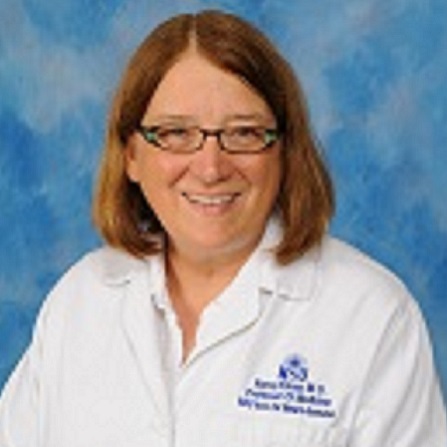
Director, Institute for Neuro Immune Medicine, Nova Southeastern University
Director, Clinical Immunology Research, Miami VAMC
Professor of Medicine, Department of Clinical Immunology, College of Osteopathic Medicine, Nova Southeastern University
Chair, Department of Clinical Immunology, College of Osteopathic Medicine, Nova Southeastern University
Professor Emerita, University of Miami, School of Medicine
Nancy Klimas, MD, has more than 30 years of professional experience and has achieved international recognition for her research and clinical efforts in multi-symptom disorders, Myalgic Encephalomyelitis/Chronic Fatigue Syndrome (ME/CFS), Gulf War Illness (GWI), Fibromyalgia, and other Neuro Immune Disorders. She is immediate past president of the International Association for CFS and ME (IACFS/ME), a professional organization of clinicians and investigators, and is also a member of the VA Research Advisory Committee for GWI, the NIH P2P CFS Committee, and the Institute of Medicine ME/CFS Review Panel. Dr. Klimas has advised three Secretaries of Health and Human Services, including Kathleen Sabelius, during her repeated service on the Health and Human Services CFS Advisory Committee. Dr. Klimas has been featured on Good Morning America, in USA Today and the New York Times.
Other Links
Dr Elizabeth Unger
Chief of Chronic Viral Diseases Branch, National Center for Emerging and Zoonotic Infectious Diseases, Division of High Consequence Pathogens and Pathology, Centers for Disease Control and Prevention
Elizabeth (Beth) Unger, PhD, MD, received an undergraduate degree in Chemistry at Lebanon Valley College, Annville, PA. She then earned her PhD and MD in the Division of Biologic Sciences at the University of Chicago where she also began a residency in pathology. Her residency and fellowship was completed at Pennsylvania State University Medical Center. During this time, Dr. Unger developed a practical method of colorimetic in situ hybridization. This work led to interest in tissue localization of HPV and ultimately to her initial appointment to CDC in 1997 to pursue molecular pathology of HPV and CFS.
Dr. Unger has served as the Acting Chief of CVDB since January 2010 and has 13 years of experience in CVDB, where she has participated in the design and implementation of CFS research and HPV laboratory diagnostics. During this time, she was co-author on 25 peer-reviewed manuscripts related to CFS, including the often-cited descriptions of the Wichita and Georgia population-based studies. In addition, Dr. Unger has been instrumental in efforts by WHO to establish an HPV LabNet and serves as lead of a WHO HPV Global Reference Laboratory. She is co-author of 142 peer-reviewed publications and 24 book chapters and serves on the editorial board of six scientific journals. In 2008, for her HPV research accomplishments, she received the Health and Human Services (HHS) Career Achievement Award.
Dr Unger has been selected to serve as the Chief of the Chronic Viral Diseases Branch (CVDB) in the Division of High-Consequence Pathogens and Pathology (DHCPP), National Center for Emerging and Zoonotic Infectious Diseases (NCEZID), Centers for Disease Control and Prevention (CDC).
Dr Per Julin
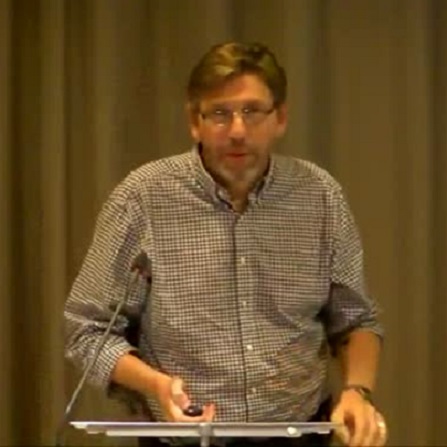
Specialist in Rehabilitation Medicine, Stora Sköndal, Stockholm, Sweden
Dr. Per Julin is a specialist in rehabilitation medicine at the Stora Sköndal clinic in Stockholm, Sweden and also Senior Consultant, Neurological Rehabilitation Medicine at Karolinska Institute, Department of Clinical Sciences, Danderyd Hospital Stockholm, Sweden.
..
Other Links
Professor Alexander MacGregor
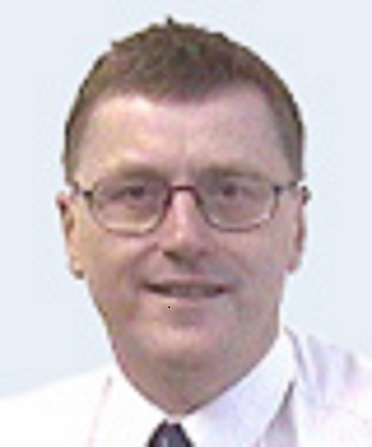
Professor of Genetic Epidemiology and Professor of Chronic Illness, Norwich Medical School, Norwich, UK
Consultant Rheumatology Norfolk and Norwich University Hospital, Norwich, UK
Professor Alexander MacGregor is a clinical epidemiologist, has expertise in genetic epidemiology (linking with the Twins UK cohort) and orthopaedic outcomes research thorough involvement with the national joint register.
Other Links
Professor Michelle West
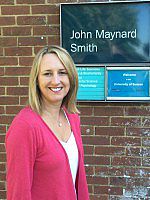
Professor of Tumour Virology (Biochemistry), University of Sussex , Sussex, UK
Following her PhD, Dr West worked on the the c-myc transcription factor at the University of Leicester as a Post-doctoral Fellow before moving to the MRC Laboratory of Molecular Biology at Cambridge to work on the regulation of HIV transcription. She moved to Sussex in November 2001 as an independent Wellcome Trust Fellow and was appointed as a member of academic faculty in March 2006, part-funded by the Wellcome Trust until March 2010.
Research expertise:
B cells, Cancer cell biology, Cell cycle, Chromatin, Epigenetics, Transcriptional regulation, Translational regulation, Virology
Other Links
Professor Karl Johan Tronstad
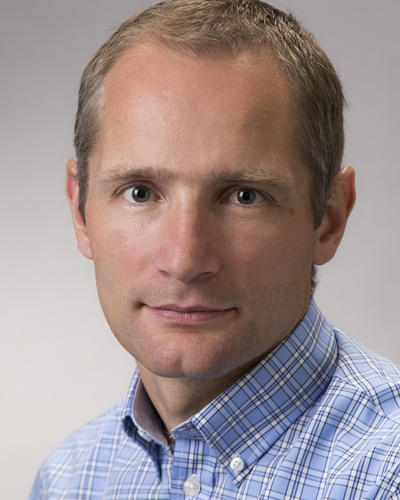
Professor Institute for Biomedicine , Tronstad Lab, Bergen, Norway
Prof. Tronstad completed his graduate studies in biochemistry at the University of Bergen (UiB) in 2002. As postdoc at the Haukeland University Hospital, he studied bioactive compounds with the potential to modulate mitochondrial functions in cancer cells. In 2005 he was recruited to the Department of Biomedicine, UiB, where he started his research group to investigate metabolism and mitochondrial physiology. His laboratory seeks to better our understanding of how defective mitochondrial homeostasis may disturb cell physiology, and how this may be involved in mechanisms of cancer and Myalgic Encephalomyelitis/Chronic Fatigue Syndrome (ME/CFS).
Karl was involved with the recent paper to come from Bergen - Journal of Clinical Investigation Insight. The Tronstad Lab investigates cell metabolism and mitochondrial biology and we are very fortunate that he can spare time to participate in the Colloquium.
Specialisms:
Metabolism, Cell biology, Mitochondria, Biochemistry
Other Links
Professor Ludovic Giloteaux
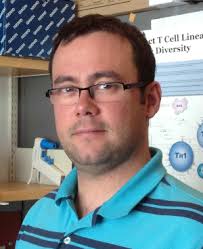
Research Associate , Department of Molecular Biology and Genetics, Cornell University, New York, USA
Research Associate at Department of Molecular Biology and Genetics at Cornell
Other Links
- http://www.news.cornell.edu/stories/2016/06/indicator-chronic-fatigue-syndrome-found-gut-bacteria
- Metabolic profiling of a myalgic encephalomyelitis/chronic fatigue syndrome discovery cohort reveals disturbances in fatty acid and lipid metabolism
- ResearchGate
- Reduced diversity and altered composition of the gut microbiome in individuals with myalgic encephalomyelitis/chronic fatigue syndrome
Jeremy Corbyn

Leader of the Labour Party, UK
Jeremy Bernard Corbyn is a British politician serving as Leader of the
Labour Party and Leader of the Opposition since 2015.
He has been the Member of Parliament (MP) for Islington North since 1983.
Links
Professor Theoharis C. Theoharides, BA, MS, MPhil, PhD, MD, FAAAAI
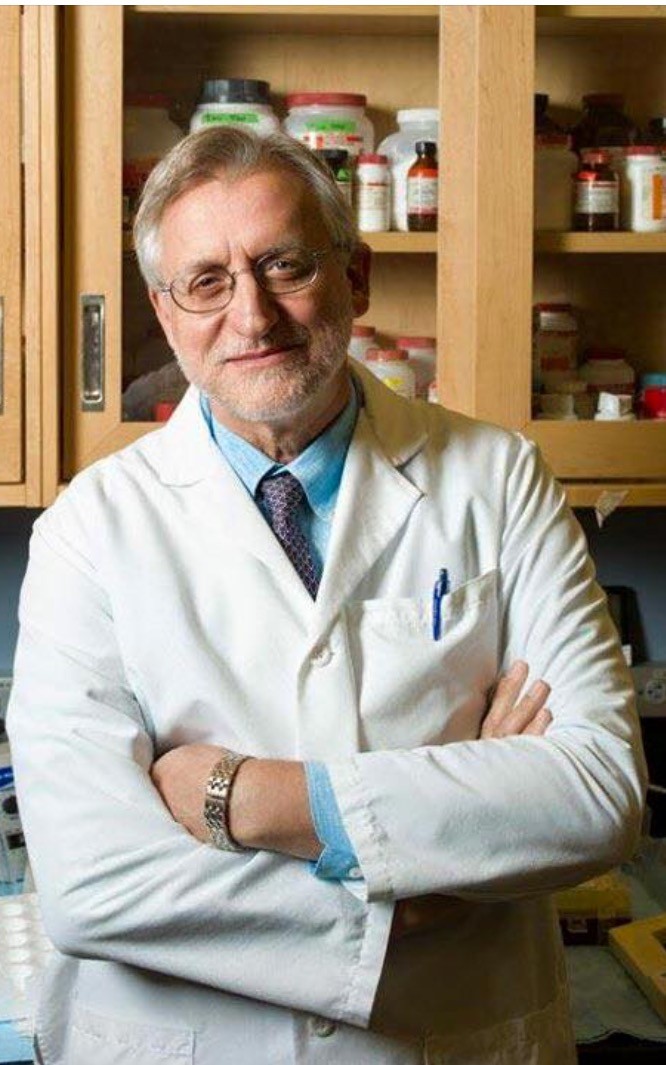
Links
Professor of Pharmacology and Internal Medicine, Tufts University, Boston, USA
Theoharis Theoharides is Professor of Pharmacology and Internal Medicine, as well as Director of Molecular Immunopharmacology and
Drug Discovery, in the Department of Immunology at Tufts University School of Medicine, Boston, MA.
He was born in Thessaloniki, Greece, and graduated with Honors from Anatolia College.
He received all his degrees with Honors from Yale University, and was awarded the Dean’s Research Award and the Winternitz Prize
in Pathology.
He trained in internal medicine at New England Medical Center, which awarded him the Oliver Smith Award “recognizing excellence, compassion and service.” He also received a Certificate in Global Leadership from the Tufts Fletcher School of Law and Diplomacy and a Fellowship at the Harvard Kennedy School of Government. He has been serving as the Clinical Pharmacologist of the Massachusetts Drug Formulary Commission continuously since 1986. In Greece, he has served on the Supreme Advisory Health Councils of the Ministries of Health and of Social Welfare, as well as on the Board of Directors of the Institute of Pharmaceutical Research and Technology, and he is a member of the International Advisory Committee for the University of Cyprus School of Medicine. He first showed that mast cells, known for causing allergic reactions, are critical for inflammation, especially in the brain, and are involved in a number of inflammatory conditions that worsen by stress such as allergies, asthma, chronic fatigue syndrome, eczema, fibromyalgia, migraines, mastocytosis, multiple sclerosis, psoriasis, and most recently autism spectrum disorder.
He has also shown that corticotropin-releasing hormone (CRH), neurotensin and substance P, peptides secreted under stress, act together, and with the cytokine IL-33, to trigger mast cells and microglia to secrete inflammatory molecules. These processes are inhibited by the novel flavonoids, luteolin and tetramethoxyluteolin that he has helped formulate in unique dietary supplements and a skin lotion. He has published over 400 scientific papers (JBC, JACI, JPET, NEJM, Nature, PNAS, Science) and 3 textbooks with 29,887 citations (h-factor 84) and he is in the top 5% of authors most cited in pharmacological and immunological journals. He has received 37 patents and trademarks, including three patents covering the use of luteolin in brain inflammation and autism: US 8,268,365 (09/18/12); US 9,050,275 (06/09/15); US 9,176,146 (11/03/15).
Acting as Advisor, he was instrumental in the development of ibuprofen (Upjohn), Cetirizine (UCB) and Niaspan (Kos). He is also the Scientific Director of Algonot, LLC, as well as President of Theta Biomedical Consulting and Development Co., Inc., of BiomedAdvice, LLC, and of the nonprofit Brain-Gain.org. He is a member of 15 academies and scientific societies. He was inducted into the Alpha Omega Alpha National Medical Honor Society and the Rare Diseases Hall of Fame. At Tufts, he served on the Curriculum, Students Promotion, Grievance, Faculty Promotion and Tenure, as well as Strategic Planning Committees. He received the Tufts Excellence in Teaching ten times, the Tufts Distinguished Faculty Recognition Award twice, the Tufts Alumni Award for Faculty Excellence, Boston Mayor’s Community Award, and the Dr. George Papanicolau Award, as well as Honorary Doctor of Medicine from Athens University and Honorary Doctor of Sciences from Hellenic-American University. He is “Archon” of the Ecumenical Patriarchate of Constantinople.
Dr Peter Holger Johnsen MD
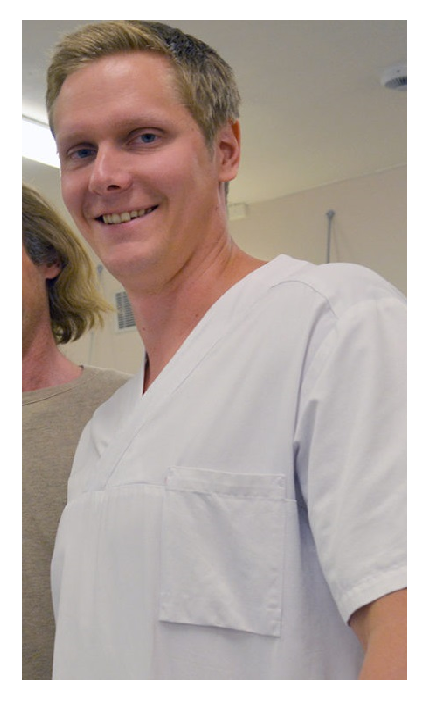
University Hospital of North Norway, Harstad, Norway - Internal Medicine
Dr Johnsen works in the medical department at the University of Northern Norway in Harstad.
He is currently involved in the clinical trial of FMT which is being funded by the Norwegian Health Council.
Five million Norwegian kroner has been awarded for the trial.
The study is supported by Norwegian Research Council.
Together, it will be included 78 participants who either receive treatment with FMT from a healthy donor or placebo.
The study is double blinded, which means that neither participants nor scientists will know who received the treatment
from donor or placebo before the study ends.
Startup with the inclusion of participants begins during Summer 2018.
Links
Dr Avindra Nath MD
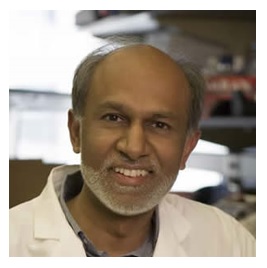
NIH National Institute of Neurological Disorders, Bethesda, Maryland, USA
Dr. Nath received his MD degree from Christian Medical College in India in 1981 and completed a residency in Neurology from University of Texas Health Science Center in Houston, followed by a fellowship in Multiple Sclerosis and Neurovirology at the same institution and then a fellowship in Neuro-AIDS at NINDS.
He held faculty positions at the University of Manitoba (1990-97) and the University of Kentucky (1997-02).
In 2002, he joined Johns Hopkins University as Professor of Neurology and Director of the Division of Neuroimmunology and Neurological Infections.
He joined NIH in 2011 as the Clinical Director of NINDS, the Director of the Translational Neuroscience Center and Chief of the Section of Infections of the Nervous System.
His research focuses on understanding the pathophysiology of retroviral infections of the nervous system and the development of new diagnostic and therapeutic approaches for these diseases.
Links
-
- Nath A. Neuroinfectious diseases: a crisis in neurology and a call for action. JAMA Neurol. 2015;72(2):143-4.
- Uzasci L, Auh S, Cotter RJ, Nath A. Mass spectrometric phosphoproteome analysis of HIV-infected brain reveals novel phosphorylation sites and differential phosphorylation patterns. Proteomics Clin Appl. 2016;10(2):126-35.
- Li GH, Anderson C, Jaeger L, Do T, Major EO, Nath A. Cell-to-cell contact facilitates HIV transmission from lymphocytes to astrocytes via CXCR4. AIDS. 2015;29(7):755-66.
- Johnson TP, Patel K, Johnson KR, Maric D, Calabresi PA, Hasbun R, Nath A. Induction of IL-17 and nonclassical T-cell activation by HIV-Tat protein. Proc Natl Acad Sci U S A. 2013;110(33):13588-93.
- Douville RN, Nath A. Human endogenous retroviruses and the nervous system. Handb Clin Neurol. 2014;123:465-85.
Professor Markku Partinen, MD, PhD
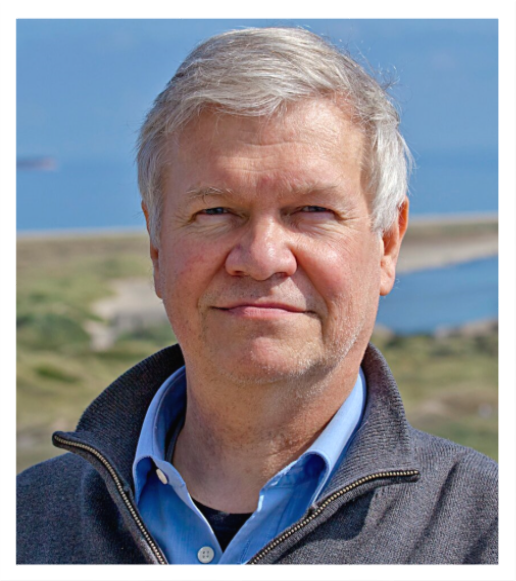
University of Helsinki, Finland
Prof Markku Partinen is a neurologist and an internationally well-known opinion leader and expert in sleep research and sleep medicine.
Professor Markku Partinen is currently Director of the Helsinki Sleep Clinic, Vitalmed Research Centre, and Principal Investigator of Sleep Research at Institute of Clinical Medicine, Clinicum, University of Helsinki, Finland.
He has been the coordinator of the NARPANord Narcolepsy Consortium.
He became interested in sleep research while studying medicine at the University of Montpellier, France.
He obtained his medical degree (DrMed) from Montpellier in 1976 (Supervisor Prof Pierre Passouant).
He received his PhD in 1982 (epidemiology of sleep disorders), and degree of a specialist in neurology in 1982, in Helsinki, Finland.
He has worked as a postdoc researcher at Stanford University, USA in 1985-86 and in Bologna, Italy in 1987.
In addition, he has had several shorter visits as visiting researcher or visiting Professor at different Universities in Europe.
His main interests in sleep medicine have been narcolepsy, excessive daytime sleepiness and fatigue (including ME), sleep apnea, and parasomnias.
He has published more than 330 original articles in peer reviewed Journals in addition to writing many book Chapters and editing several books.
His Hirsch factor (H-factor) is 59 in ISI Web of Sciences and 64 in Scopus.
He has served in the Editorial Boards and as Assistant Editor in Sleep, Journal of Sleep Research and Sleep Medicine.
He has had many International positions in different research societies including Member of the Scientific Board and Vice-President
of the European Sleep Research Society (ESRS), President of the Scandinavian Sleep Research Society, President Elect and President of the
World Association of Sleep Medicine (WASM), Coordinating Secretary of the World Federation of Sleep Research Societies (WFSRS) and
President and Member of the Board of the Scandinavian Sleep Research Society.
He has been President of the ESRS congress in 1992 (Helsinki), the World Congress of Sleep Apnea in 2003 (Helsinki),
and the WASM congress in 2007 (Bangkok).
In addition, he has organized several smaller meetings and symposia in the field of narcolepsy, RBD and different sleep disorders.
Currently he is a Member of the Board in the ESRS EU-Narcolepsy Network (EU-NN) and Chair of Scientific Board of the EU-NN, President of the
Finnish Parkinson Association and President of the Finnish Sleep Research Society.
He has published
more than 250 articles in peer-reviewed international journals, several books and chapters.
Links
Professor Heikki Hyöty, MD, PhD
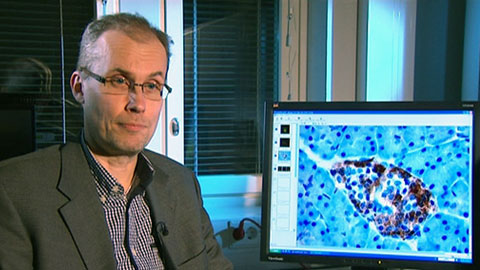
Links
School of Medicine, Virology University of Tampere, Finland.
Professor Heikki Hyöty is a professor of Virology at the University of Tampere, Finland
Professor Heikki Hyöty’s group has long experience in studies evaluating the role of viruses in type 1 diabetes and allergies.
He has published pioneering prospective studies and has made many new discoveries on the role of enteroviruses in diabetes.
One recent initiative is a project aiming at developing enterovirus vaccine against type 1 diabetes.
This long-term commitment to this particular topic has created a strong research center in Tampere.
Dr. Hyöty has previous experience from the coordination of large scale international research projects (for example two EU projects)
and the laboratory participates in international quality control programmes (e.g Quality Control for Molecular Diagnostics, QCMD)
and complies with general GLP and written SOPs.
Professor Hyöty’s group has also made pioneering work in translation of research findings
in collaboration with academic and industrial partners.
Dr Jesper Mehlsen
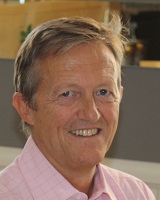
Research Director, Coordinating Research Centre, Bispebjerg and Frederiksberg Hospital, Denmark
Co-chair European ME Research Group
Expertises
Autonomic nervous system; Heart rate and blood pressure control; Cardiovascular physiology and pathophysiology;HPV vaccines and -complications
Main research areas
Methods for the study of autonomic cardiovascular control; Mathematical modelling of cardiovascular control; Autoimmune response to vaccination; Mathematical modeling of the neuroinflammatory reflex
Current research
Mathematical analysis of hemodynamic adaptations to the upright posture.Mathematical analysis of hemodynamic response to Valsalva manoeuvre
Dynamic T-wave alterations and the autonomic nervous system
Mathematical analysis of cytokine response to LPS in humans
Autoimmunity in patients with possible side effects to HPV vaccination
Links
Dr Naomi Allen
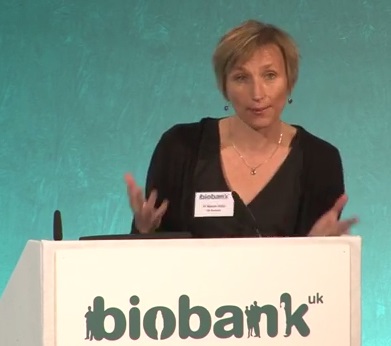
Links
Senior Epidemiologist, UK Biobank, University of Oxford, UK
Senior Epidemiologist, UK Biobank
Naomi Allen is Senior Epidemiologist for UK Biobank and an Associate Professor of Epidemiology at the University of Oxford, UK.
She is responsible for processing the linkage of routine electronic medical records into the study for long-term follow-up (including deaths, cancers, primary and secondary care data as well as other health-related datasets).
She helps to co-ordinate the introduction of new enhancements into the resource (such as the development of web-based questionnaires and proposals for cohort-wide biomarker assays) and provides scientific advice to researchers worldwide wishing to access UK Biobank.
Her academic research interests are in cancer epidemiology, with a keen research interest in the role of diet, obesity and circulating biomarkers in cancer development.
Dr Lesley Hoyles
Imperial College, London, UK
Dr Lesley Hoyles is a microbiologist and computational biologist, and an MRC Intermediate Research Fellow in Data Science (UK Med-Bio). The early years of her career focussed on the isolation and phenotypic characterization of novel anaerobic Actinobacteria. Her PhD studies at the University of Reading introduced Dr Hoyles to the gut microbiota, and led her to develop an interest in integrating various -omics and traditional approaches to look at microbe–host interactions and co-metabolism. After completing a Government of Ireland Postdoctoral Fellowship in Science, Engineering and Technology (IRCSET scheme) at University College Cork to develop improved methods for the isolation and characterization of gut-associated bacteriophages, Dr Hoyles was awarded an MRC Advanced Scholarship to undertake an MSc in Bioinformatics with Theoretical Systems Biology at Imperial College London.
Subsequently, Dr Hoyles has worked in the field of translational systems biology at Imperial College London, using her unique skill set to investigate host–microbiome interactions and co-metabolism in humans, and animal and in vitro models.
In addition to her research interests, Dr Hoyles teaches on the MRes Biomedical Research stream Microbiome in Health and Disease. She is heavily involved in outreach activities, running Bugs In Your Guts and an after-school science club, and volunteering at the Turing House CoderDojo. Dr Hoyles is a STEM Ambassador and an Academic Editor for PeerJ.
Dr Karl Morten

University of Oxford, UK
Dr Karl Morten is a researcher and laboratory manager at Nuffield Department of Obstetrics and Gynaecology, John Radcliffe Hospital, Oxford University.
Links
Professor Kristian Sommerfelt
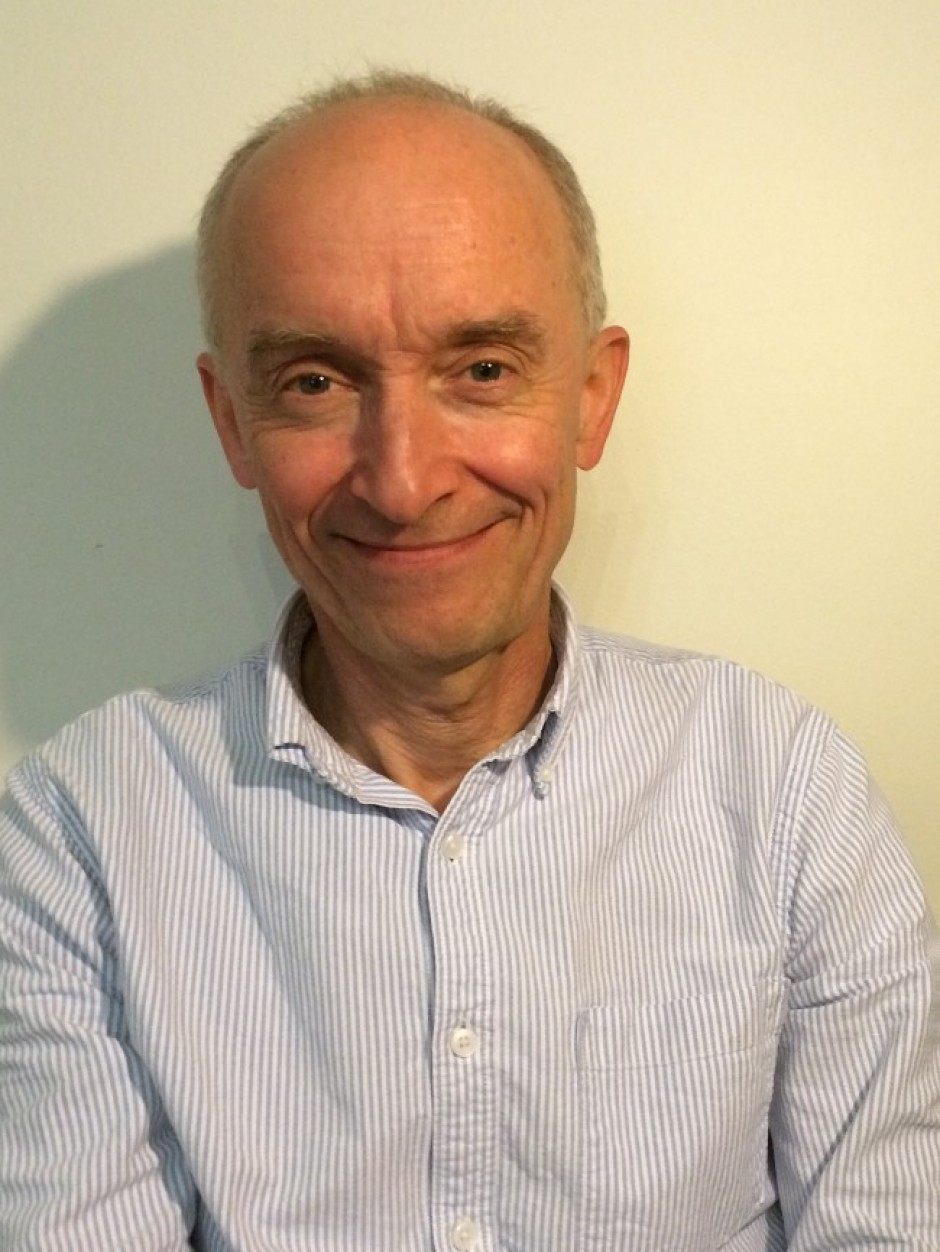
Haukeland University Hospital, Bergen, Norway
Professor Kristian Sommerfelt is a paediatric neurologist at Haukeland University hospital in Bergen, Norway
.................
Links
QIB PhD Students
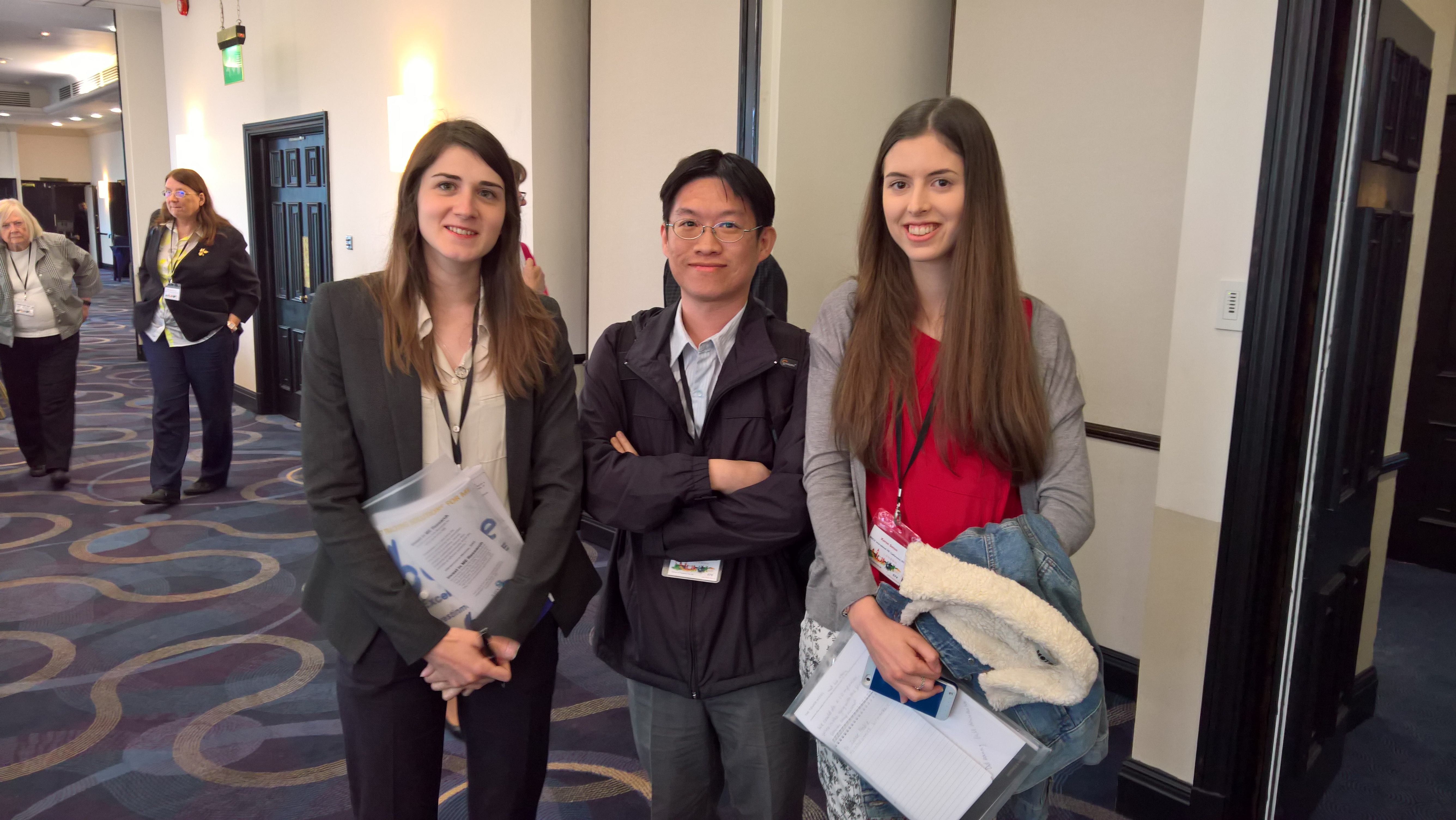
Quadram Institute Bioscience, UK
PhD Students at Quadram Institute Bioscience are Daniel Vipond, Fiona Newberry, Katahrine Seton and Shen-Yuan Hsieh.
Projects funded by Invest in ME Research are here - http://www.investinme.org/ce-projoverview.shtml
Links
Dr Ben Seddon
Benedict Seddon, Institute of Immunity and Transplantation · Division of Infection and Immunity, UCL, London, UK
Dr Ben Seddon undertook his PhD with Prof Don Mason at the former MRC's Cellular Immunology Unit, at the Sir William Dunn School of Pathology in Oxford University.
There he studied the role and mechanisms of regulatory T cells in the control of autoimmunity in rats.
He then moved to the MRCs National Institute for Medical Research where he worked first as a post-doc with Dr Rose Zamoyska in the Division of Molecular Immunology,
and then started his independent research group as a Programme Leader in the Division of Immune Cell Biology.
He has had 10 years at NIMR establishing a research programme investigating the mechanisms of T cell homeostasis, generating novel genetic models of TCR and
cytokine signalling, employing mathematical approaches to gain systems level understanding and identifying novel roles for inflammatory signalling
for T cell maturation.
In 2013, he relocated the lab to the Institute of Immunity and Transplantation at the Royal Free Hospital Campus of University College London, where he is investigating the role of TNFSFR signalling and NF-kappaB transcription factors in the maturation and function of T cells in health and disease.
Malav Trivedi
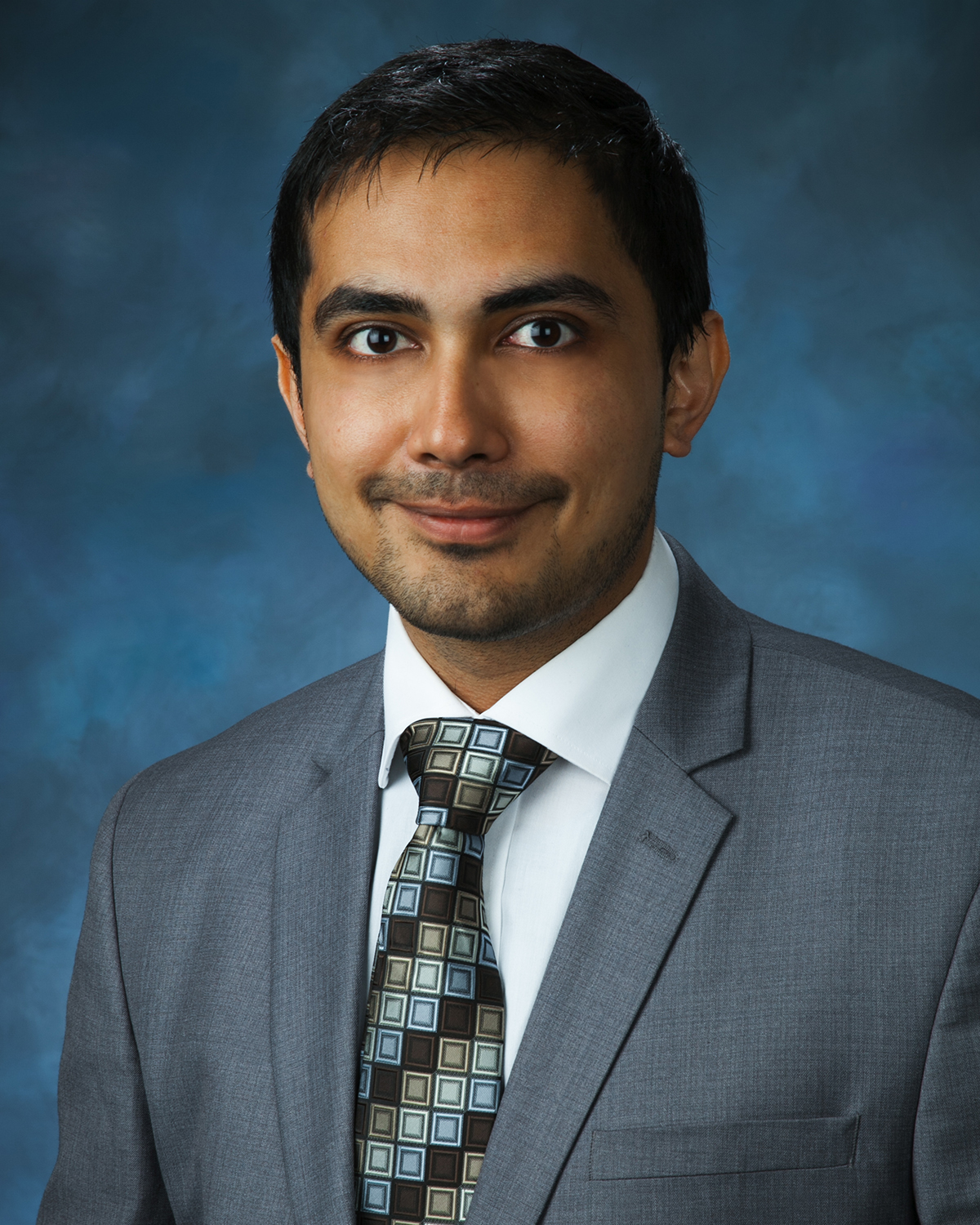
Assistant Professor at Nova Southeastern University
EDUCATION/TRAINING:
B.S.- Pharmacy - North Gujarat University
M.S.-Pharmacology - Northeastern University
Ph.D.- Pharmacology - Northeastern University
Links
Anne Cooke, FMedSci, FRSB
Emeritus Professor of Immunobiology Anne Cooke, University of Cambridge, UK
Anne Cooke began her academic career as a postdoctoral fellow. From 1970 to 1972, she held a SRC postdoctoral fellowship in the Department of Biochemistry at the University of Sussex. From 1972 to 1973, she was a postdoctoral fellow at the University of Illinois and worked at the Medical Center, Chicago, USA. From 1973 to 1978, she held a Arthritis Research UK postdoctoral research fellowship in the Immunology Department of Middlesex Hospital. Then from 1978 to 1981, while remaining at Middlesex Hospital, she was a Wellcome Trust senior research fellow.
In 1981, she moved from research into teaching and research.
From 1981 to 1988, she was a Wellcome Trust senior lecturer within the immunology division of the UCL Medical School and also at the Middlesex Hospital Medical
School.
From 1988 to 1990, she was Reader in Experimental Immunology at University College London.
In 1990, Anne moved to the University of Cambridge.
From 1990 to 1996, she was a lecturer in the Department of Pathology.
In 1992, she was elected a Fellow of King's College, Cambridge.
From 1996 to 2000, she was Reader in Immunology.
In 1999, she was a visiting professor at the University of Washington, Seattle.
On 1 October 2000,
she was granted a personal chair and appointed Professor of Immunobiology.
In 2013,
she retired from full-time academia; she was appointed Professor Emeritus and made an Emeritus Fellow of King's College.
From https://en.wikipedia.org/wiki/Anne_Cooke
BSc (Hons) Biochemistry, University of Glasgow
DPhil Biochemistry, University of Sussex.
SRC Postdoctoral Fellowship, Dept Biochemistry, U. Sussex.
Postdoctoral Fellow, University of Illinois at the Medical Center, Chicago,USA.
ARC Postdoctoral Research Fellowship, Immunology Department, Middlesex Hospital Medical School.
Honorary Lecturer, Dept Biochemistry, St Mary's Hospital Medical School.
Wellcome Trust Senior Research Fellow, Immunology Department, Middlesex Hospital Medical School.
Wellcome Trust Senior Lecturer, Immunology Division, University College and Middlesex Schools of Medicine.
Reader in Experimental Immunology University College, London
Lecturer, Department of Pathology, University of Cambridge.
Reader in Immunology, Department of Pathology, University of Cambridge.
Professor of Immunobiology, Department of Pathology, University of Cambridge.
Honorary Fellow, University College, London.
Fellow of the Academy of Medical Sciences
Honorary Degree University of Copenhagen
Associate Professor Petter Brodin MD PhD
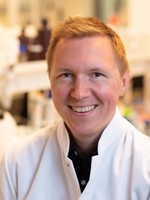
Associate Professor
SciLifeLab, Department of Women’s and Children’s health , Karolinska Institutet
Department Newborn Medicine , Karolinska University Hospital
Sweden
Associate Professor Petter Brodin's team at Karolinska Institutet in Sweden - is aiming to understand human immune system variation in health and disease, and understand the factors that shape human immune systems.
Other interests are in defining better metrics of immune system health and develoingp methods for better immune system analyses in human patients.
As a physician at the department of pediatrics at the Karolinska University Hospital, he has a particular interest in understanding when and how human immune systems are shaped early in life, and the influences by environmental exposures such as the microbiome, infections, vaccines, nutritional components etc in this process.
His team is firmly convinced that the way to understand human immune systems and their variation,
is to analyse all system components simultaneously and relathionships between these taken into account.
This have recently been made possible with the development of novel high-dimensional methods operating at single-cell resolution, such as Mass cytometry and scRNA-seq.
To analyze human immune systems at the systems-level, his team is developing novel experimental methods and algorithms for analyses.
Other Links
Professor Brigitte Huber PhD
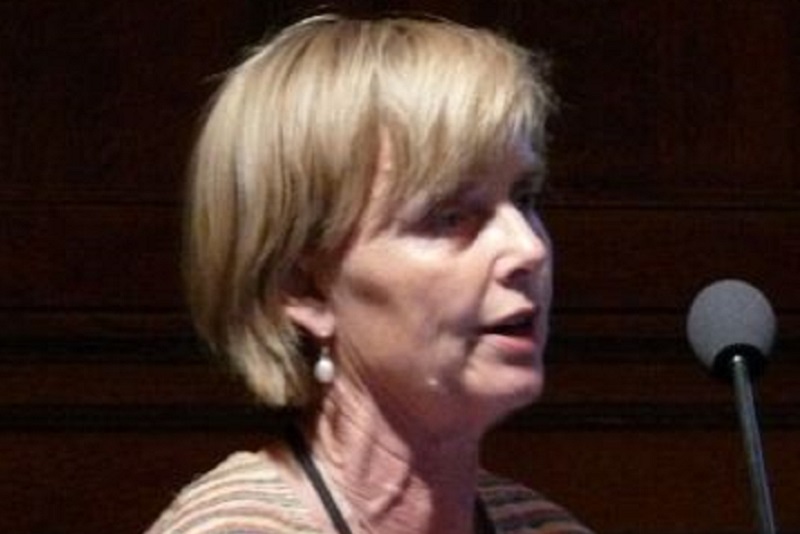
Professor of Pathology at Tufts University, Boston, USA
Professor Huber studied immunogenetics at University of London and is currently Professor of Pathology at Tufts University, Boston, USA.
Dr Huber joined the faculty of Tufts Medical School in 1977, and her laboratory has investigated the cellular and molecular mechanisms involved
in the immune response since that time. She has studied the presence of retrovirus HERV K-18 as a marker for those who might develop ME/CFS after
an acute infection such as mononucleosis.
Her research shows that EBV induces the HERV K-18 envelope gene to trigger the expression of a specific
superantigen and that there are more HERV K-18 alleles in post-mono ME/CFS patients than in controls.
She hopes to identify other subsets among CFS patients.
Mrs Annette Whittemore
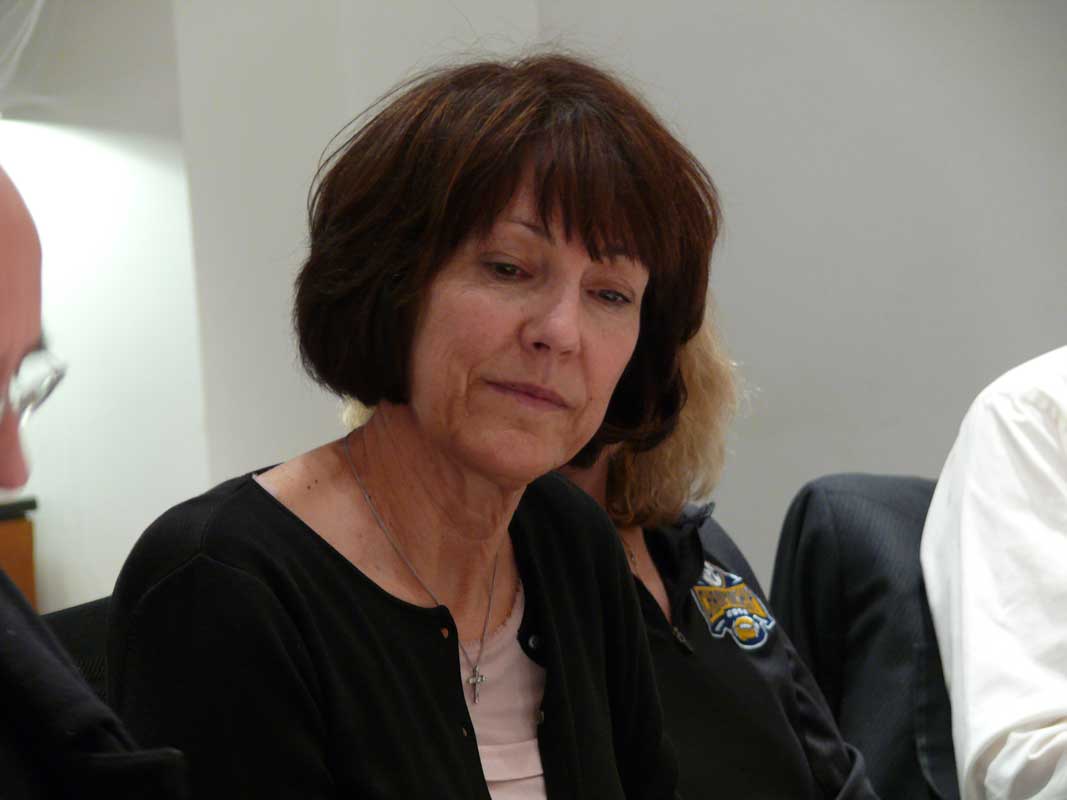
Whittemore Peterson Institute for Neuroimmune Diseases, Reno, Nevada, USA
Founder and President of the Whittemore Peterson Institute for Neuroimmune Diseases, Reno, Nevada, USA.
The Institute is located on the medical campus of the University of Nevada.
Its mission is to serve those with complex neuro-immune diseases such as ME/CFS,
viral induced central nervous system dysfunction and fibromyalgia. Annette Whittemore
graduated in Elementary and Special Education at the University of Nevada and taught
children with neuro-cognitive deficits, such as those found in autism, ADD, and learning
disabilities. As the president and director of the current operations at the Institute
Annette supports the basic and clinical research program, and actively recruits physicians
and other support personnel for the Institute.
Dr Judy Mikovits
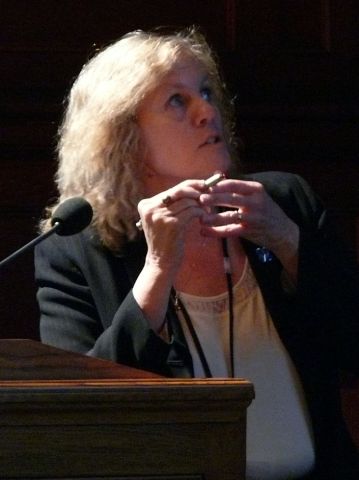
Research Director at the Whittemore Peterson Institute for Neuroimmune Diseases, Reno, Nevada, USA
Dr Judy Mikovits obtained her Ph.D. in Biochemistry and Molecular Biology from George Washington University. She is Research Director at the Whittemore Peterson Nevada CFS centre for Neuro-Immune disorders and has co-authored over 40 peer reviewed publications that address fundamental issues of viral pathogenesis, hematopoiesis and cytokine biology. Dr Mikovits was co-author of the "Detection of an Infectious Retrovirus, XMRV, in Blood Cells of Patients with Chronic Fatigue Syndrome" research paper in October 2009 in Science magazine.
Dr Ron Tompkins MD, ScD
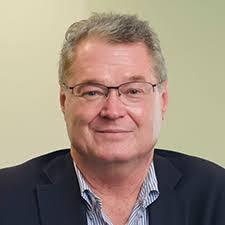
Director of the Center for Surgery, Science and Bioengineering, Massachusetts General Hospital
BRIEF BIOGRAPHY
Ronald G. Tompkins, MD, ScD, is the Sumner M. Redstone Professor of Surgery at Harvard Medical School, Founding Director of the Center for Surgery, Science & Bioengineering at Massachusetts General Hospital, and Chief of Staff Emeritus at Shriners Hospitals for Children―Boston.
The Center, a division of Surgery at Mass General, is a newly established center for research and innovation based upon the Mass General Burns Division’s collaborative track record and expertise in securing more than $200 million in federal, foundation, and industrial support for basic research and clinical programs.
It is a clinically-driven enterprise that engages in the basic sciences and engineering to solve everyday challenges in clinical medicine. The center promotes the development of new approaches to healthcare delivery and personalized medicine, minimally invasive therapies, as well as a myriad of new technologies such as re-engineered organs, smart nano-pharmaceuticals and nano-diagnostics, and living cell-based microfabricated devices for diagnostics, therapeutics, high-throughput drug screening, and basic and applied biomedical investigation.
He is a board-certified general surgeon with a doctorate in chemical engineering, which provides him with expertise not only in the clinical evaluation of critical care patients, but also in inflammation biology, genomics, proteomics, and computational biology.
Elected as a Director of the American Board of Surgery in 1994, he has received multiple honors including a fellowship from the American Institute for Medical and Biological Engineering and an honorary M.A. from Harvard University. He has served as an officer including as President and Board Member of more than a dozen national and international academic societies. RESEARCH SUMMARY
Dr. Tompkins has published more than 450 research papers in medicine and engineering journals and has contributed to the advancement of science and engineering through service on institutional advisory panels, moderating mini-symposia and workshops on biotechnology, and studying the genomics and proteomics of immunology and metabolism resulting from injury.
Together with his Division colleagues, nearly 300 fellows have been mentored in the Division’s training programs with many excellent success stories.
Other Links
Dr Wenzhong Xiao

Assistant Professor of Surgery, Massachusetts General Hospital/Assistant Professor of Surgery (Bioinformatics), Department of Surgery, Harvard Medical School
Dr. Xiao serves as an Assistant Professor of Surgery at Massachusetts General Hospital and Harvard Medical School. Dr. Xiao is internationally recognized in the field of Computational Genomics in Surgery and Medicine. He develops genomics tools and computational methods that can be widely applicable in clinical studies, study the human immuno-metabolic response in disease, and develop innovative approaches to address these challenges and to help translate genomic studies of patients to better disease diagnosis, prevention and therapeutics.
His area of expertise is in knowledge based analysis for the interpretation and integration of genomic data and computation to translate genome technologies to clinical research. For high-throughput, cost-effective analyses of human transcriptome in large scale patient studies, he developed the most comprehensive GeneChip to date (in collaboration with Affymetrix and Wing Wong).
Comparing with RNA-sequencing (RNA-seq) data, the array is shown to be highly reproducible in estimating expression at both gene and exon levels and reliable in detection of alternative splicing. In collaboration with Dr. Ron Davis and Stanford Genome Technology Center, he has developed bioinformatic and statistical tools for data analysis, especially for alternative splicing.
From The Center for Surgery, Innovation & Bioengineering
Other Links
Dr Michael VanElzakker
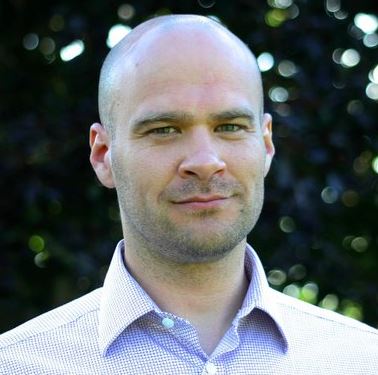
Neuroscientist, Massachusetts General Hospital/Tufts University, USA
Biography
Dr. VanElzakker received a master's degree in behavioral neuroscience at the University of Colorado, working in Dr. Robert Spencer's neuroendocrinology laboratory, and a PhD in experimental clinical psychology at Tufts University, working in Dr. Lisa Shin's psychopathology neuroimaging laboratory. His postdoctoral fellowship is at Massachusetts General Hospital/ Harvard Medical School, at the Martinos Center for Biomedical Imaging, in the Division of Neurotherapeutics.
Dr. VanElzakker is interested in uncovering the mechanisms of post-traumatic stress disorder (PTSD), and of myalgic encephalomyelitis - also known as chronic fatigue syndrome (ME/CFS).
His PTSD research uses functional and structural brain imaging, behavioral attention tasks, blood, and genetic data to investigate what makes some individuals vulnerable to PTSD following trauma. He is interested in using non-invasive electroceutical medical devices to enhance safety learning, which may eventually serve as an adjunct to enhance exposure-based therapy for PTSD.
His ME/CFS research uses functional and structural brain imaging to look for abnormal patterns in brain metabolism and inflammation in this patient population. This research focuses on dysfunction at the intersection of the nervous and immune systems and posits that ME/CFS may be what happens when the nervous system detects an exaggerated and ongoing innate immune response. He is interested in using non-invasive electroceutical medical devices to enhance the anti-inflammatory vagus nerve reflex.
From The Center for Surgery, Innovation & Bioengineering
Other Links
Professor Stuart Bevan
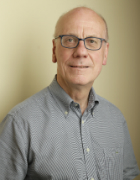
King’s College London, UK
Biography
Professor Stuart Bevan is Professor of Pharmacology at the Wolfson Centre for Age Related Diseases. From 1997 to 2005, he was Head of the Chronic Pain Unit for Novartis based in the Novartis Institute for Biomedical Research laboratories on the UCL campus.
Other Links
European ME Clinicians Council

European ME Clinicians Council
European ME Clinicians Council
Links:
http://investinme.org/IIMER-Newslet-190102EMECC.shtmlDr Benedicte Lie
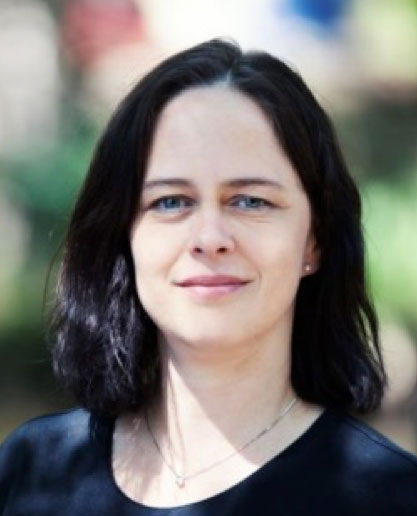
University of Oslo, Norway
Dr Benedicte Alexandra Lie
University of Oslo · Department of Medical Genetics (DMG)
https://www.med.uio.no/klinmed/personer/vit/balie/index.html
Elisa Oltra
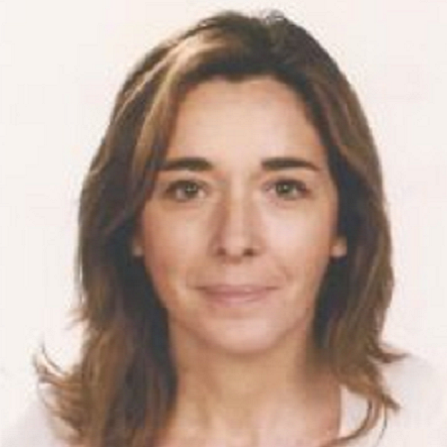
Universidad Católica de Valencia “San Vicente Mártir”, Spain
Dr. Elisa Oltra is a professor of Cell and Molecular Biology at the Universidad Católica de Valencia “San Vicente Mártir” where she also
works as a researcher in the area of stem-cell and cancer.
She obtained an M.S. degree in Biochemistry at the Universitat de Valencia (Spain) and later earned her PhD in Biochemistry, Cell and Molecular Biology at the
University of Miami, FL (USA) where she stayed for her post-doctoral training and later, as Senior Scientist till 2006 when she moved
back to Spain. During her studies at the University of Miami she identified alternative 5´UTR sequences involved in regulating cell-cell
communication through mechanisms of differential connexin43 expression in the heart.
She also isolated a novel essential protein (Ini) and demonstrated its participation in mechanisms of transcription and splicing.
In 2009 she started a project to investigate the molecular basis of Fibromyalgia having identified at present irregularities
in RNAseL expression and miRNAs profile changes in the participating patients which could lead to a deeper understanding of the disease.
In 2012 she joined the IVP Valencian Institute of Pathology, also at the Universidad Católica de Valencia where she is currently studying a specific
type of vesicles: the exosomes, as mediators of stem-cell based therapies.
She is also academic director of the first officially accredited Master degree in Biobanking in Europe in collaboration with the Spanish Network
of Biobanking at the Instituto de Salud Carlos III, Madrid (Spain).
Simon McArthur
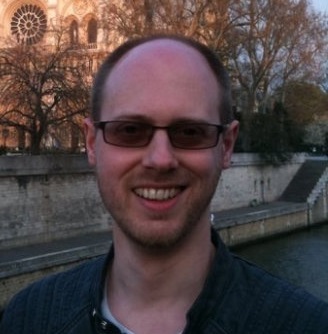
Queen Mary, University of London, UK
Simon McArthur - Senior Lecturer in Neuroscience & Pharmacology Clinical
Queen Mary, University of London
1997-2000 - University of Cambridge, BA Hons in Natural Sciences
2000-2004 - Imperial College London, PhD in Pharmacology - Effects of steroid hormones upon mesencephalic dopaminergic nuclei in rodents: adult neuroprotection & perinatal programming
2004-2011 - Research Associate, Department of Cellular & Molecular Neuroscience, Imperial College London
2011-2014 - Postdoctoral Research Fellow, William Harvey Research Institute, Queen Mary, University of London
2014-2016 - Lecturer in Physiology, Department of Biomedical Sciences, University of Westminster
2016-present - Non-Clinical Senior Lecturer in Neuroscience & Pharmacology, Institute of Dentistry, Queen Mary, University of London
His research concentrates on Alzheimer’s disease and developing an understanding of how the factors that are known to increase risk of its development are actually mediated.
He is particularly interested in how changes in peripheral homeostasis affect the main defensive structures of the brain, the blood brain barrier (BBB) and the microglia,
and the implications these may have for the development of Alzheimer’s disease.
His group focuses on the so-called gut-brain axis, and communication between the human gut microbiota and the BBB, where they have shown several different
microbe-derived metabolites to regulate BBB integrity and function in vitro and in vivo.
A major arm of this work now focuses on investigating how dietary modification of the gut microbiota can influence neuroinflammatory disease,
with a view to identifying nutritional mechanisms to promote brain resilience in the face of neurodegenerative challenge.
This work is generously funded by Alzheimer’s Research UK.
A second focus of his research is into the mechanisms of inflammatory resolution, focusing particularly on the role of the protein annexin A1 and its
primary receptor FPR2. They have shown that annexin A1 acting through FPR2 is a major chemoattractant for infiltrating monocytes, and
that it promotes their differentiation into pro-resolving macrophages, a key step in the healthy and regulated termination of
an inflammatory reaction.
His group is now investigating the role of FPR2 in microglia, given their close relationship to macrophages, focussing on whether agonists for this receptor may
have value as an approach to limit neuroinflammatory activity in Alzheimer’s disease.
https://www.qmul.ac.uk/dentistry/people/profiles/simonmcarthur.html
BRMEC9
9th Biomedical Research into ME Colloquium 2019
The Invest in ME Research Biomedical Research into ME Colloquium 9 (#BRMEC9) will take place in London over two days from 29th - 30th May 2019.
The ninth Colloquium aims to increase international collaboration in research into ME.
Error processing SSI file


